Research Spotlights
Graduate Students and Postdoctoral Researchers
Graduate Student and Post Doctoral Researcher Spotlights
Our graduate students and postdoctoral researchers have many opportunities to work on significant and meaningful research projects. Enjoy these highlights:
2024 Spotlights
May 2024
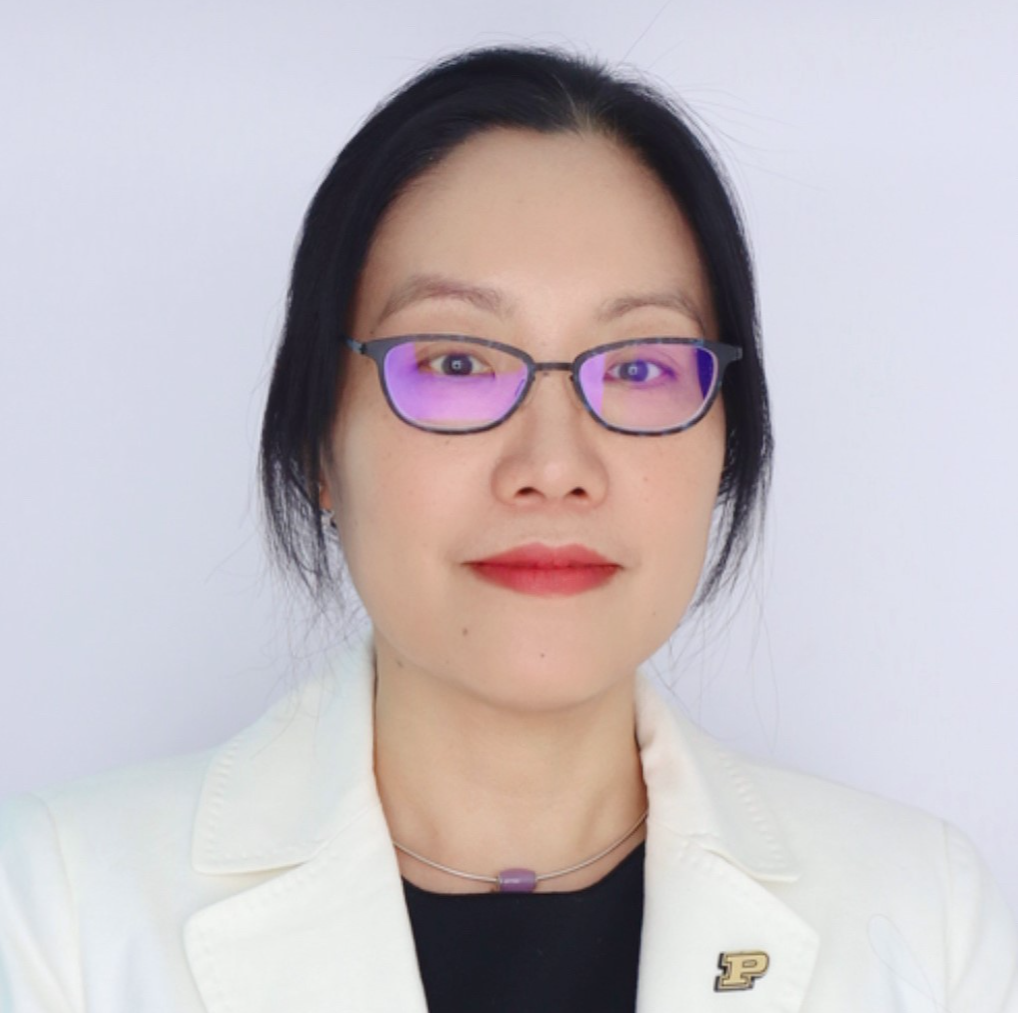
Fangfang Mo
Fangfang Mo is in the first year of her PhD program in Gifted Education in the Department of Educational Studies.
Read more about Fangfang Mo
Where are you from and what did you do prior to your PhD program?
I have a diverse professional background, including experience as a German-Chinese interpreter and translator in both Shanghai and Singapore. Subsequently, I have worked as a Chinese language teacher in both Singapore and Syracuse, NY. Prior to my doctoral study, I have worked as a TA in the Fayetteville-Manlius School District in Syracuse, NY.
Why did you choose Purdue and your area of concentration?
I selected Purdue as the institution for my doctoral study due to its reputation as a leader in the field of education. The GER2I in the College of Education at Purdue has earned a reputable status in the realm of gifted education worldwide. The faculty consists of renowned scholars who possess extensive knowledge and experience in the field. Additionally, my advisor’s research aligns with my personal research interests. Lastly, the diverse cultural atmosphere among the international student body at Purdue provides a source of inspiration for me.
What are your areas of research interest? What led to your interest in these areas?
My research encompass a range of topics, including the study of creativity and related topics, examination of social-emotional issues affecting gifted adolescents, exploration of alternative identification methods that do not rely on IQ or other cognitive assessments, and investigation of underachievement among gifted female students, especially those from underrepresented backgrounds. My passion for the field of gifted education was fostered while serving as a Chinese language teacher in Singapore. During that time, I had the opportunity to work closely with gifted students and became aware of their unique academic and social-emotional needs. I observed that some of these gifted students were at risk due to a lack of appropriate educational support. This experience motivated me to further explore the needs of gifted students and seek ways to help them reach their full potential and make meaningful contribution to society.
What have been the highlights of your research experience so far?
As a novice in the field of gifted education, I have been actively working on several research projects that align with my research interests. My current projects include exploring underachievement among gifted female students from financially impacted families in the aftermath of the pandemic, examining the potential social-emotional impact of the pandemic on gifted adolescents, and investigating gifted students’ perspectives on the influence of ChatGPT and other AI applications. I hope that my research will make a dent in the field, no matter how small.
Where do you hope to be in five years?
In five years, I see myself as a tenure-track assistant professor at a leading research university, where I can continue to advance the field of gifted education through my research, teaching, and engagement. My goal is to make a meaningful impact on the lives of gifted individuals and the broader community through my dedication and commitment to this field.
What advice do you have for your fellow graduate student researchers?
I would like to share a valuable lesson that I have learned from my advisor with my fellow graduate student researchers. It is utmost important to maintain a balanced work-life equilibrium and to prioritize one’s commitments. It is essential to constantly reflect on what truly holds significance in one’s life, and to allocate one’s time and resources accordingly. By doing so, one can cultivate a harmonious and fulfilling existence, both professionally and personally.
April 2024
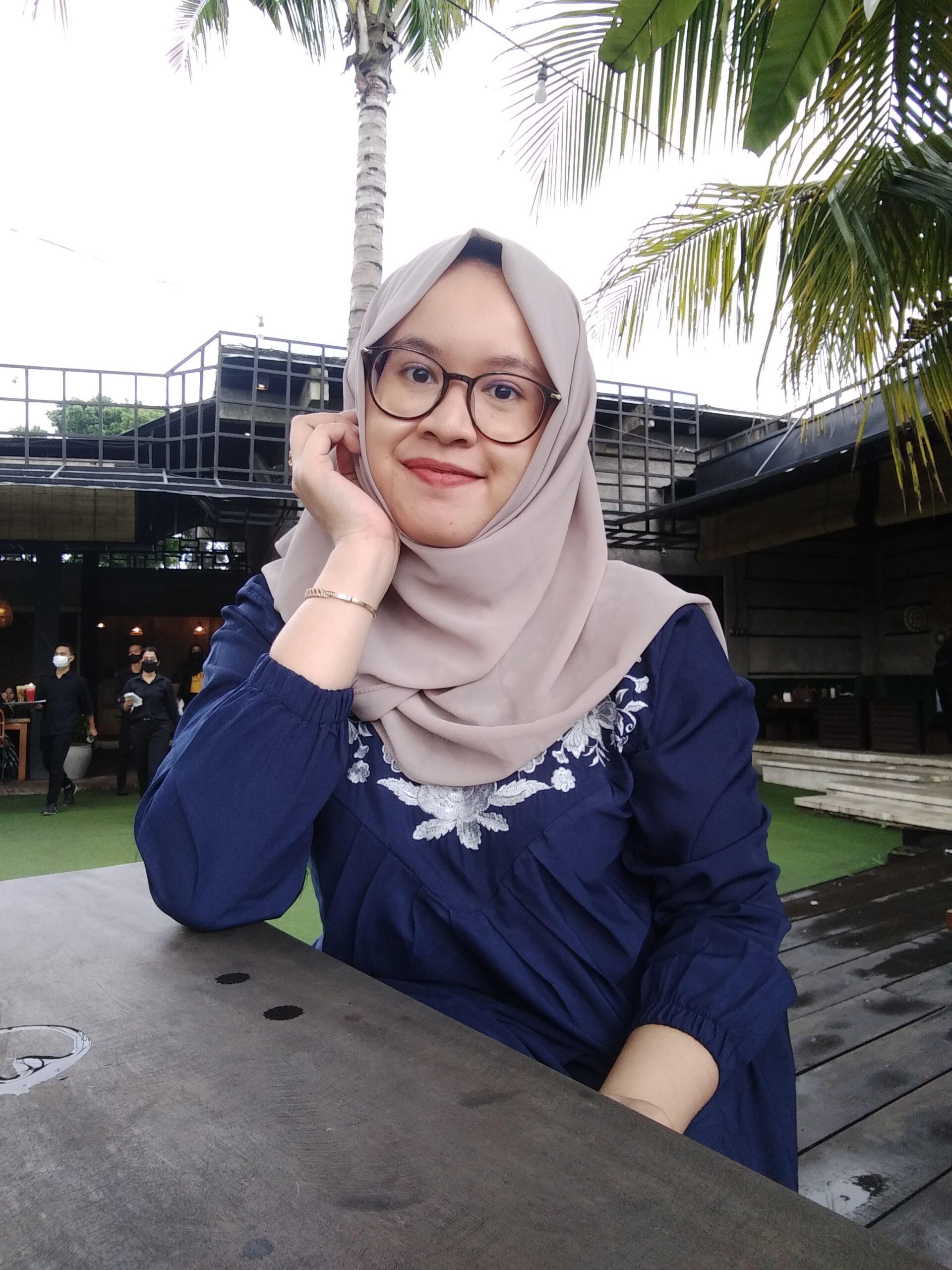
Shahnaz Safitri
Shahnaz Safitri is in the second year of her PhD program studying Gifted, Creative, and Talented Studies in the Department of Educational Studies.
Read more about Shahnaz Safitri
Where are you from and what did you do prior to your PhD program?
I completed my master’s degree at Bogazici University in Turkey. I am from Indonesia, the world’s largest archipelago with over 17,000 islands (including Bali!), as well as more than 700 local languages. Before coming to Purdue, I was an assistant professor in the Faculty of Psychology at Universitas Indonesia (www.ui.ac.id) and also worked as a psychologist at Apshara Talent Development Center (www.apshara.co). My academic background includes a Bachelor’s degree in Psychology and a Master’s degree in Educational Psychology, both earned at the same university.
Why did you choose Purdue and your area of concentration?
I chose Purdue University because of my longstanding interest in the field of Gifted Education, dating back to 2013 when I was just a sophomore. During that time, I became aware of Purdue University’s Gifted Education Research and Resource Institute (GER2I), which is renowned as the world’s leading institution for studying and researching this topic. However, I didn’t immediately plan to pursue a long-term career in this field, as I was still quite young and busy exploring my interests and the available opportunities. Fast forward to after I graduated with my master’s degree and began practicing as a school psychologist, I found myself frequently working with clients who exhibited certain tendencies and characteristics similar to those of gifted children. These clients quickly became my favorites to work with. Interestingly, many of them had grown into accomplished individuals, challenging my previous perception of gifted individuals as predominantly children. Moreover, during my time as a lecturer teaching undergraduate students, I began to notice students with high academic and leadership potential who required a different approach to help them reach their full potential. All of these experiences rekindled my genuine interest in gifted education from many years ago. When the opportunity arose to secure a Fulbright Scholarship and a Ross Fellowship for enrollment in a Ph.D. program in the United States, I enthusiastically chose Purdue University to work at GER2I and gain a deeper understanding of this phenomenon.
What are your areas of research interest? What led to your interest in these areas?
Within the field of gifted education, my research interest lies in the interplay between creativity and emotionality. I firmly believe that what distinguishes humans from other living beings is the way we channel and modulate our emotions, as well as how we harness our creativity to solve problems, whether they are simple or complex. This topic becomes even more captivating for me when I can explore it alongside high-ability students, as they possess intense emotionality and high levels of creativity. Often, people tend to perceive gifted or high-ability students solely from an academic perspective. However, I firmly believe that much more should be investigated regarding their creativity in various other domains as well. I anticipate that the insights gained from this research will prove to be valuable in fostering creativity among all students.
What have been the highlights of your research experience so far?
I have been working on a meta-analysis study alongside my advisor, Dr. Nielsen Pereira, who is also the Director of GER2I. Our study focuses on factors behind creativity in gifted education. In these early stages of the project, I have observed that numerous factors play a role in either fostering or hindering creativity. It has become increasingly intriguing to me to understand how to nurture creativity, particularly in high-ability students. Additionally, I am involved in another study that explores the creative teaching practices of Indonesian teachers and their perspectives on high-ability students. My advisor has also engaged me as a research assistant in a STEM talent development program, which is one of the Javits grant projects at GER2I. This role has provided valuable insights into the U.S. education system and the practical implementation of talent development in education.
Where do you hope to be in five years?
My plan is to return to the same institutions where I was previously employed, as I am technically still their employee (with a conditional study permit to the U.S.). Therefore, I will be heading back to Indonesia to continue my journey as a lecturer in the Faculty of Psychology at Universitas Indonesia and as a psychologist at the Apshara Talent Development Center. Given that Indonesia does not yet formally recognize the field of gifted education, and I am the first person from my country to specialize in this field, I hope to initiate the delivery of educational services to assist students in need and engage in further research on this topic.
What advice do you have for your fellow graduate student researchers?
Many of my colleagues have shared with me the advice that graduate students should develop a deep affection for their research topic. Similar to falling in love, this entails commitment and dedication, rather than a fleeting infatuation. It won’t be easy, but the effort is undoubtedly worthwhile, and the journey itself is a source of joy. So, I want to pass on their message to all of you as well. Additionally, remember to express gratitude for your current position while remaining mindful of your aspirations for the future.
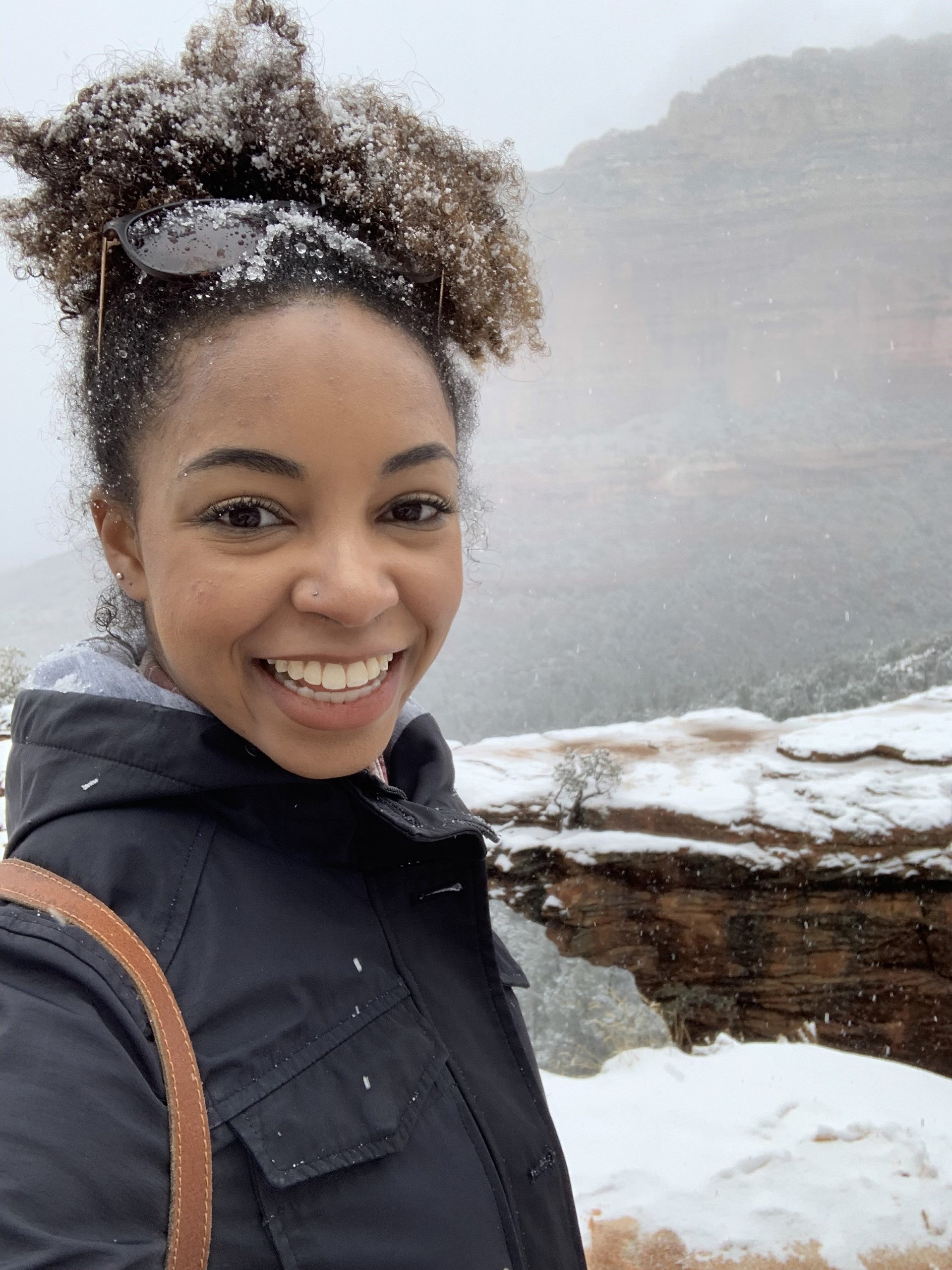
Jessica Renee Bowen Pereira
Jessica Renee Bowen Pereira is in the fifth year of her PhD program in Counseling Psychology in the Department of Educational Studies.
Read more about Jessica Renee Bowen Pereira
Where are you from and what did you do prior to your PhD program?
I’m from NJ. I graduated from Rutgers University-Newark in 2019 with undergraduate degrees in psychology and cognitive neuroscience.
Why did you choose Purdue and your area of concentration?
I chose Purdue because I liked my advisor and the resources that the institution has to offer.
What are your areas of research interest? What led to your interest in these areas?
I am interested in how psychological variables are expressed differently in people of color and how to best capture this with quantitative measures in research and clinical settings. As a scientist-practitioner, my clinical work in neuropsychology has inspired my work in this area.
What have been the highlights of your research experience so far?
I am developing and validating a culturally-informed scale to measure impostor phenomenon in Black college students. It’s been pretty cool reviewing the findings.
Where do you hope to be in five years?
I expect to be a licensed clinical neuropsychologist prepping for my board-certification!
What advice do you have for your fellow graduate student researchers?
Don’t bite off more than you can chew. You have your whole academic career to pursue amazing research projects. Make sure that your thesis is manageable so you can graduate in a timely fashion.
March 2024
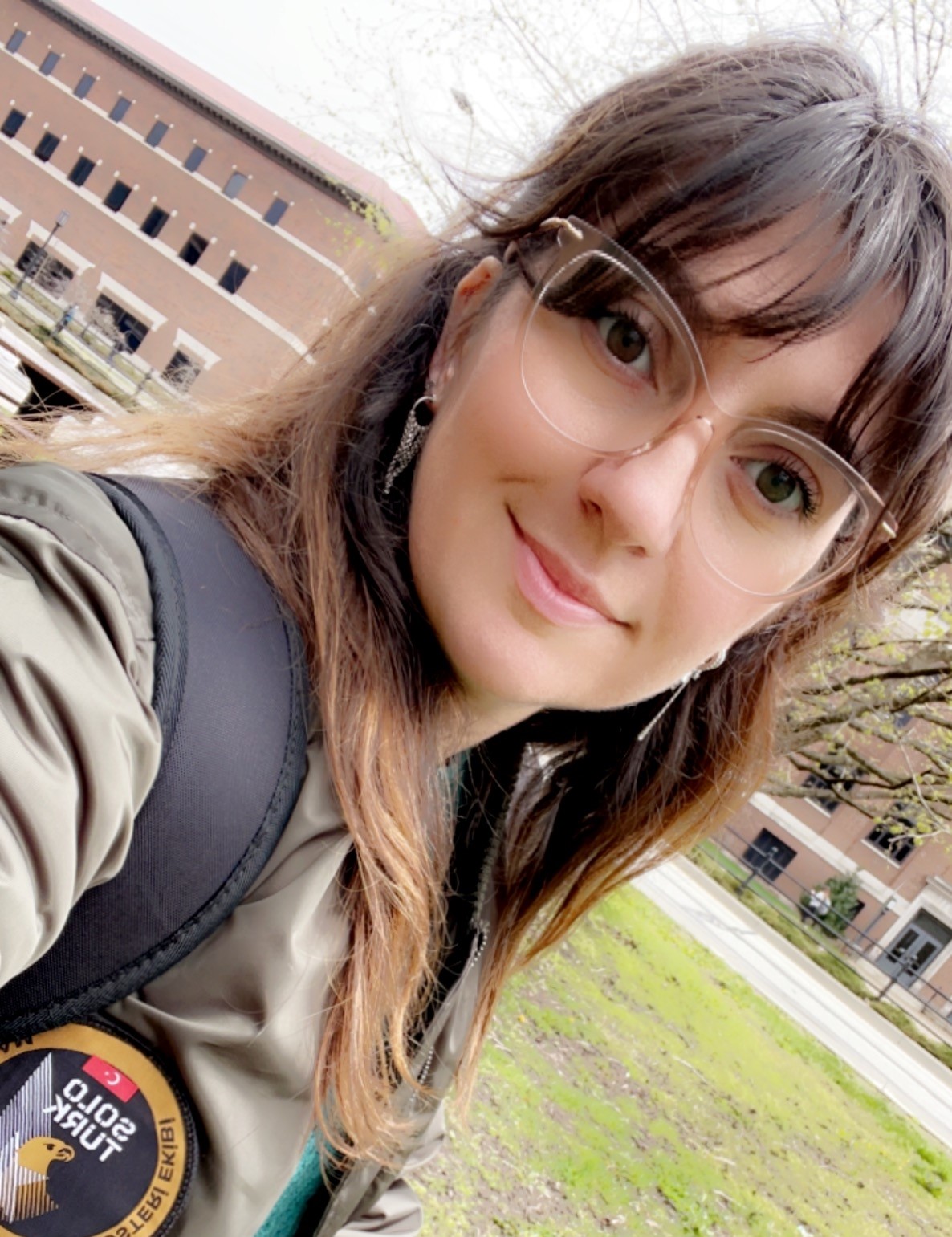
Zeynep Gonca Akdemir
Zeynep Gonca Akdemir is in the fifth year of her PhD program in Science Education in the Department of Curriculum and Instruction.
Read more about Zeynep Gonca Akdemir
Where are you from and what did you do prior to your PhD program?
Turkey, I completed my master’s degree at Boğaziçi University.
Why did you choose Purdue and your area of concentration?
Purdue is great for Engineering Education and studying the integration of science and engineering.
What are your areas of research interest? What led to your interest in these areas?
I am developing curriculum for middle school students. I was interested in K-12 outreach for underrepresented communities, then I started creating curriculum targeting students from diverse backgrounds.
What have been the highlights of your research experience so far?
I have developed several quantum based science curricula for middle school students studying in public Indiana schools. My research significantly provides public awareness of fundamental quantum concepts and training for in-service teachers to think of science as a field outside of the box through the wacky and wild aspects of the quantum world. Also, my dissertation research findings highlight the significant improvement of students’ understanding of quantum after they are taught a week-long curriculum unit.
Where do you hope to be in five years?
I would like to be a successful teacher trainer who specifically contributes to the learning of diverse groups of students, mostly focusing students with special needs in science.
What advice do you have for your fellow graduate student researchers?
They should do what they love and have passion to do it. Purdue is a great school to do a PhD.
February 2024
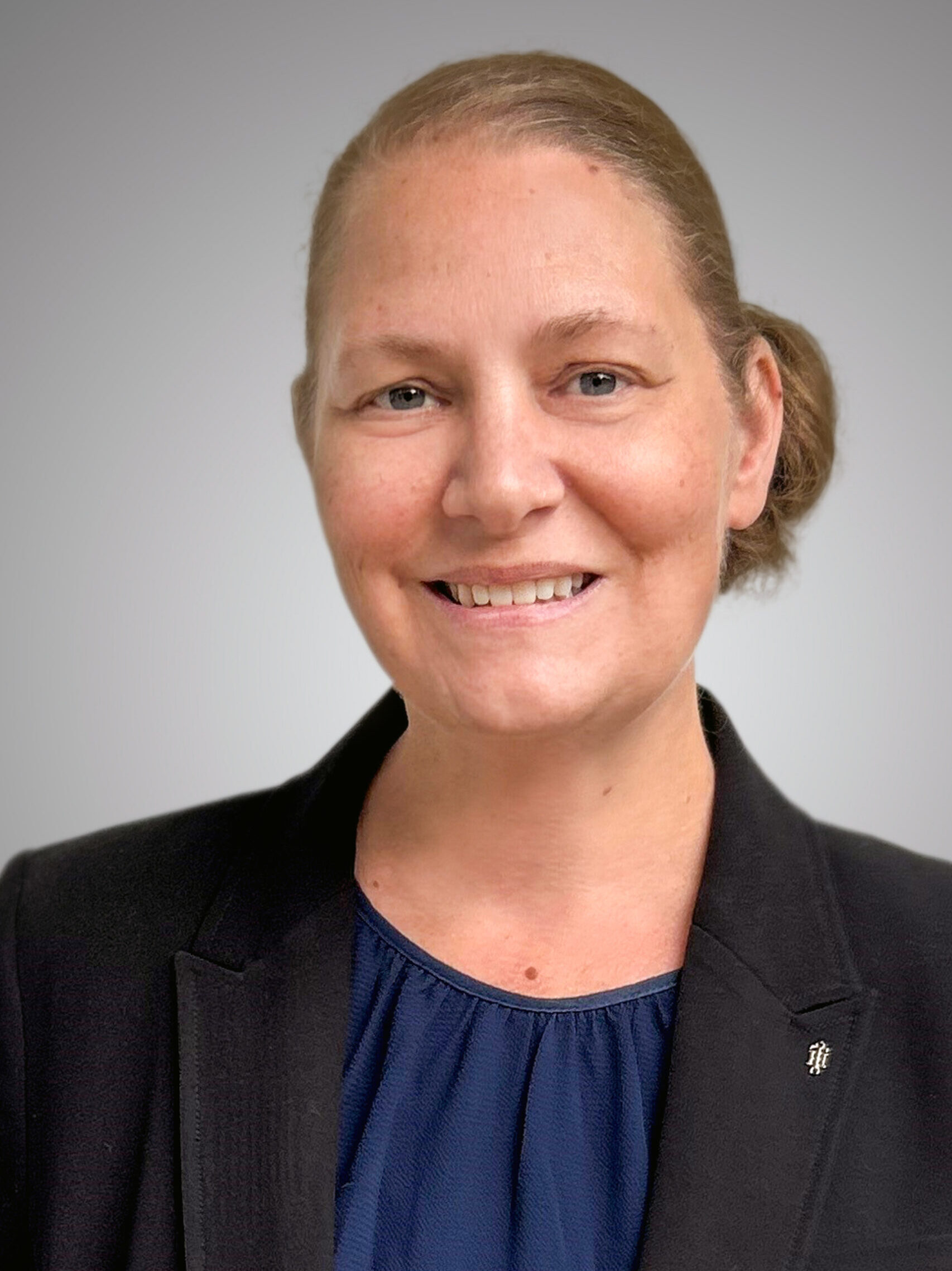
Dr. Rebecca Johnson
Dr. Rebecca Johnson is a Postdoctoral researcher in the Department of Educational Studies. She completed her PhD at the University of North Texas, Spring 2023.
Read more about Dr. Rebecca Johnson
How would you briefly describe your area of research?
My areas of research include socioemotional well-being of gifted individuals, parenting in the context of profound giftedness, and barriers to sustainable access to academic opportunities for gifted students from diverse backgrounds. My experience as an educator and parent of gifted students led to my research interests.
What has been your research experience so far?
My research experience so far has been getting to work with leaders in my field who are passionate, collaborative, and mission driven.
Why did you choose the College of Education at Purdue University?
I was excited to be a postdoctoral research associate on the U.S. Department of Education, Jacob K. Javits grant funded project entitled, “Having Hope Promotes Excellence: Developing Scholar Identities among Underserved Youth with Gifts and Talents” led by Dr. Kristen Seward. My area of concentration is giftedness, creativity, and talent development.
What do you hope to be doing in 5 years?
I hope to continue to be a part of the mission of making gifted education equitable and accessible and to aid in the well-being of gifted individuals and their families.
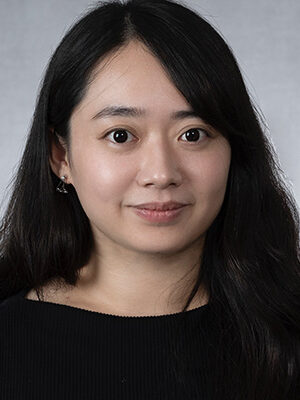
Chi-Jia Hsieh
Chi-Jia Hsieh is in the second year of her PhD program in Learning Design and Technology in the Department of Curriculum and Instruction.
Read more about Chi-Jia Hsieh
Where are you from and what did you do prior to your PhD program?
I’m from Taiwan and was an information technology teacher and web developer before coming to Purdue.
Why did you choose Purdue and your area of concentration?
Purdue is a great institution with outstanding faculties and researchers! You might not believe it, but I also chose Purdue because of the weather here!
What are your areas of research interest? What led to your interest in these areas?
My research interest falls into graduate students’ emotions, well-being, and learning experience. This all started during my master’s study in reading emotion and experience.
What have been the highlights of your research experience so far?
Even though my research journey just started, it has been an amazing year meeting all the talented people and learning new things every day!
Where do you hope to be in five years?
I hope I will earn my doctoral degree in 5 years and be on the path to becoming a postdoctoral researcher or even working as a professor!
What advice do you have for your fellow graduate student researchers?
I would advise them not to push themselves too hard, and it’s important to take time off!
January 2024
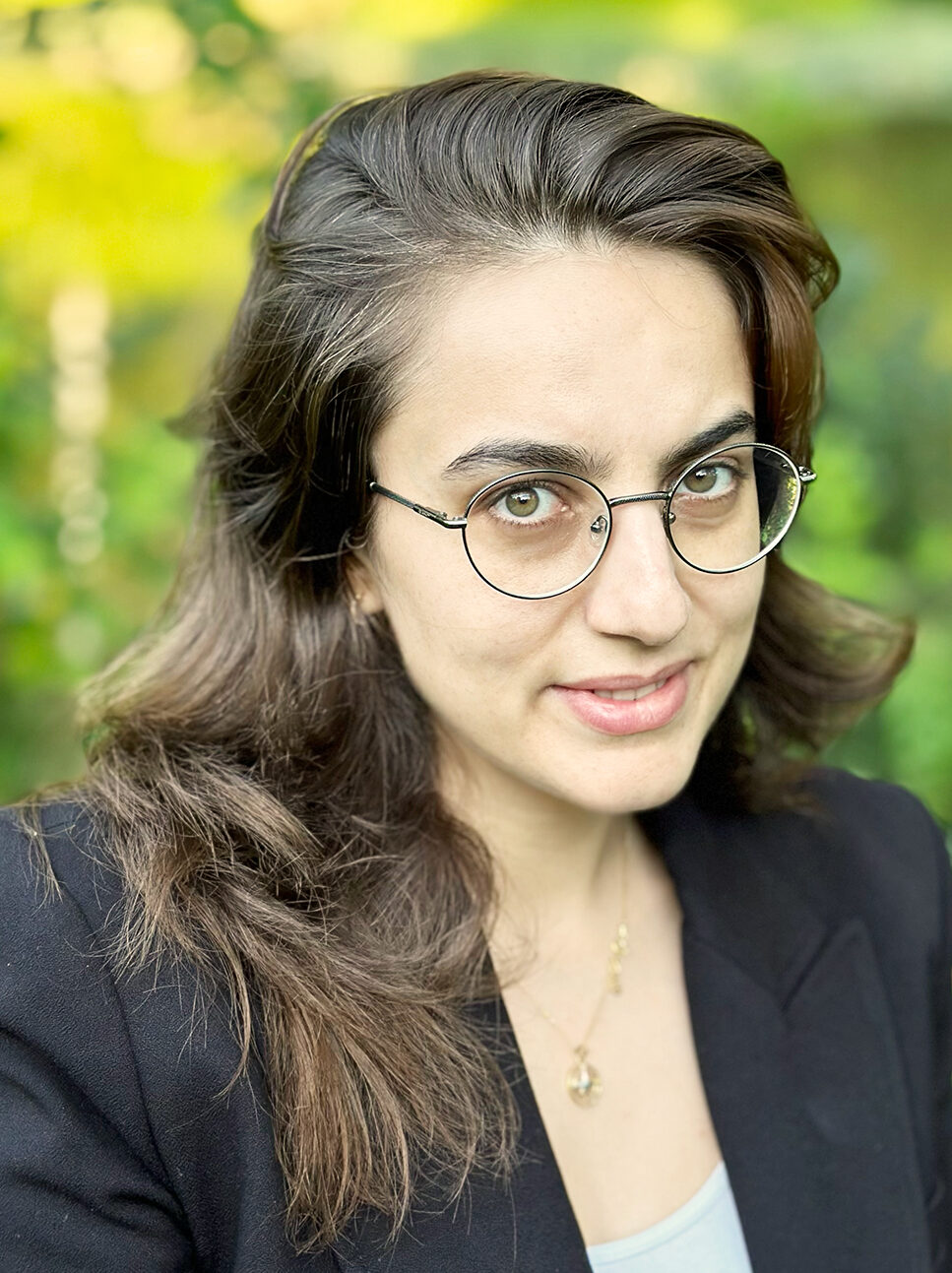
Dr. Tugba Boz
Dr. Tugba Boz is a Postdoctoral Researcher for STEM in the Department of Curriculum and Instruction.
Read more about Dr. Tugba Boz
How would you briefly describe a research or project agenda you have completed?
I’ve recently collaborated with colleagues from Montana State University, Penn State University, Purdue University, and Drake University to make significant contributions to the field of elementary education research. We have submitted proposals to both the AERA and NARST annual meetings, as well as a paper to the International Journal of STEM Education. My recent research agenda focuses on community-based engineering education in elementary schools with a particular emphasis on marginalized, rural, and Indigenous communities. Additionally, my recent submissions investigate integrated STEM education and how elementary teachers incorporate programming and robotics into mathematics through the use of argumentation and inquiry.
What are you currently working on or plan to work on?
I am currently involved in one NiH-funded and two NSF-funded research projects. The NiH project aims to boost STEM/bioscience career interest among underrepresented middle school students and enhance the science outreach skills of university students in biomedical fields. One NSF-funded project examines factors influencing teacher change and the long-term sustainability of science and engineering teaching support in grades 3-5. The final NSF-funded project supports rural and indigenous elementary teachers in designing and implementing place-based engineering activities to promote awareness, interest, and readiness for engineering careers among 3rd – 5th graders. Currently, I am collecting and analyzing data and preparing manuscripts for these projects.
Are there any recent or forthcoming publications you are excited about?
I am really excited about an upcoming publication we are currently working on. In this piece, our goal is to delve into the experiences of Indigenous students participating in community-based engineering lessons and the experiences of Indigenous teachers implementing community-based engineering in their elementary school located on a reservation area.
What do you enjoy doing when you’re not conducting research?
I enjoy watching independent movies with my husband and our friends. I like hiking, gardening, and visiting Turkey to see my friends and family there.
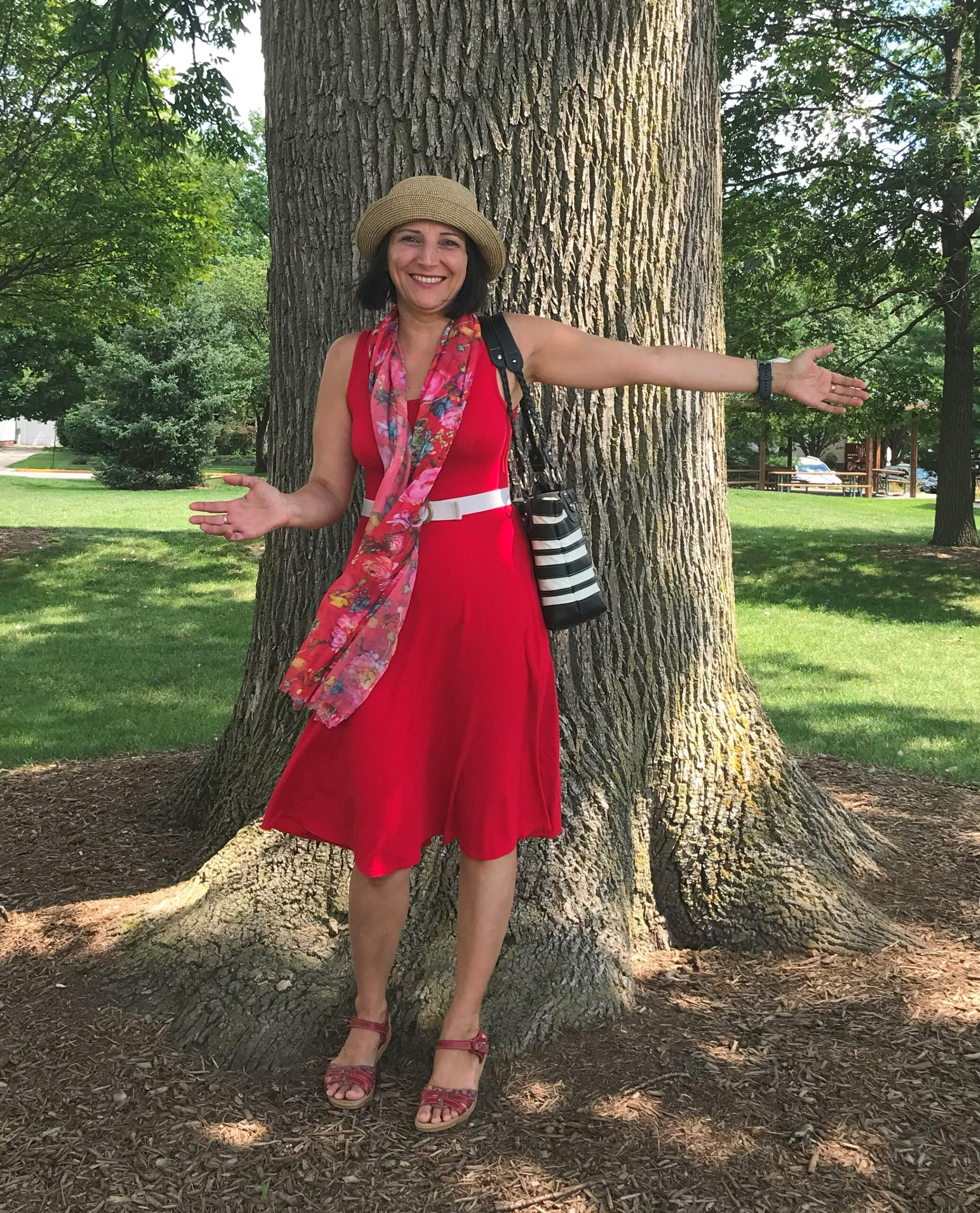
Ana-Maria Haiduc
Ana-Maria Haiduc is in the sixth year of her Mathematics Education PhD program in the Department of Curriculum and Instruction.
Read more about Ana-Maria Haiduc
Where are you from and what did you do prior to your PhD program?
I live in Valparaiso Indiana with my family. Originally, I am from Romania, but I am proud to be an American citizen too. Prior to PhD I taught college courses at Purdue Northwest and Ivy Tech.
Why did you choose Purdue and your area of concentration?
I chose Purdue West Lafayette because I finished my master’s at Purdue Northwest, and I wanted to continue my education and eventually pursue a PhD in mathematics education. I was confident that the same high level of instruction would be provided at Purdue West Lafayette, which was demonstrated across the years of attending courses and learning about research.
What are your areas of research interest? What led to your interest in these areas?
My research areas intertwine care theory, curricular decisions, cognitive equity, and teacher’s classroom practices with a focus on eliciting students’ thinking through questioning. These interests originate from my identity as a mathematics teacher in both countries, Romania and the United States. Regardless of the country, there are lots of resources that teachers analyze before making curricular decisions to respond equitably to the students’ cognition. My research focuses mostly on teachers but also includes indirectly the students through teachers’ eyes and reasoning about them.
What have been the highlights of your research experience so far?
My research experience was possible thanks to my professors, Dr. Signe Kastberg, Dr. Laura Bofferding, Dr. Rachel Kenney and Dr. Elizabeth Suazo-Flores with whom I have collaborated and published research.
Where do you hope to be in five years?
Mostly I am thinking about the present time and what I want to accomplish in the near future. When I think from a macro-perspective, I always picture myself as part of the mathematics research community because I strive to learn from other researchers new ideas and offer my scholarship as well.
What advice do you have for your fellow graduate student researchers?
The research ideas are infinitely many. There is always something that can be developed whether it is novel research or a replicated study. Identifying a research focus might take some time, but that’s because we need to learn first how to step on giants’ leaps.
2023 Spotlights
November 2023
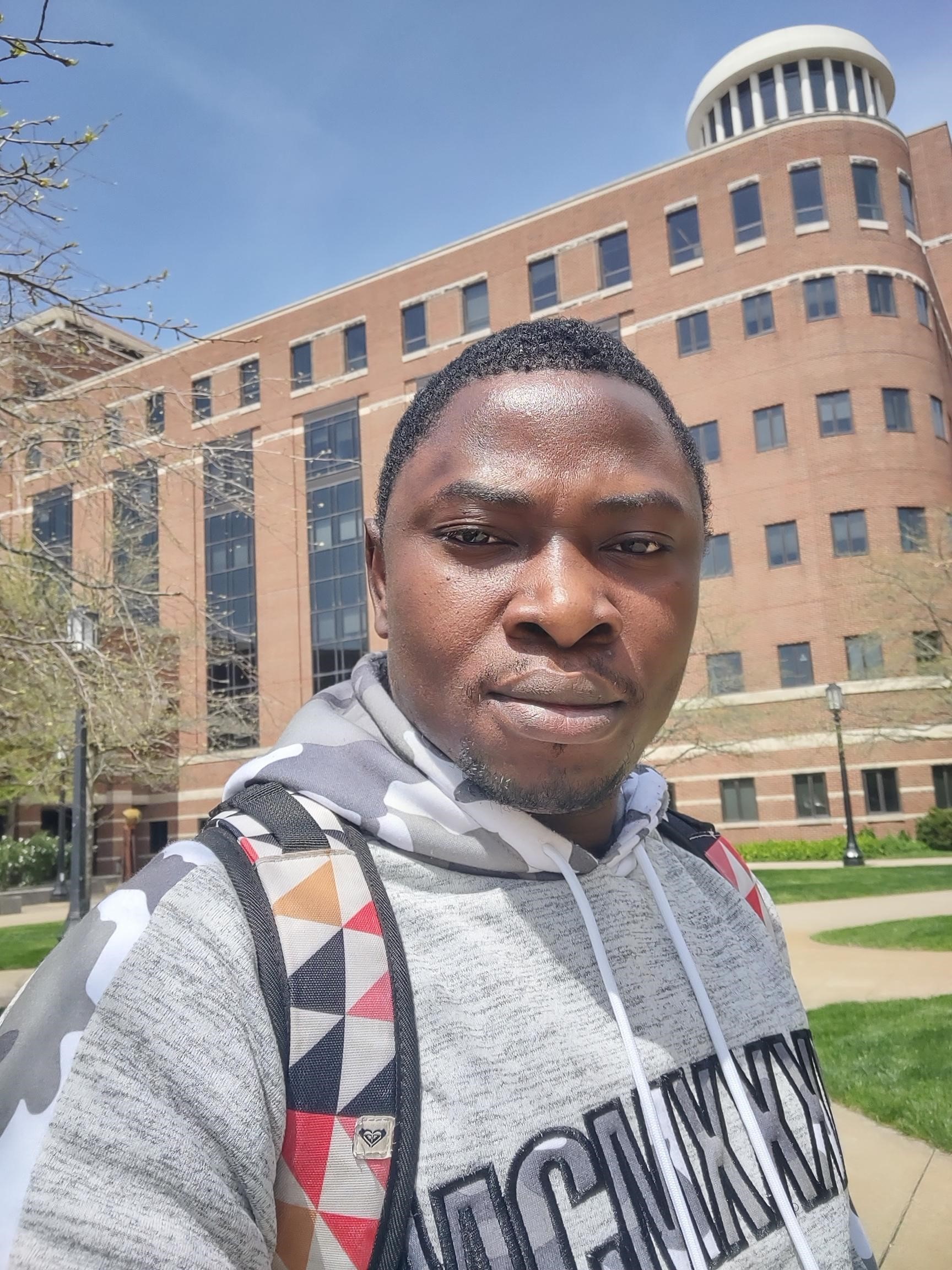
Emmanuel Babalola
Emmanuel Babalola is in the third year of his PhD program in Learning Design and Technology in the Department of Curriculum and Instruction.
Read more about Emmanuel Babalola
Where are you from and what did you do prior to your PhD program?
I hail from Nigeria, and before embarking on my PhD program at Purdue, my journey was deeply rooted in the field of education, specifically physics education. For seven years, I served as a physics educator, teaching using both the British and Nigerian curricula. In addition to my classroom endeavors, I have been a fervent advocate for technology-enhanced active learning. Furthermore, I am passionate about preserving and celebrating indigenous languages in the teaching and learning of the sciences in Nigeria.
Why did you choose Purdue and your area of concentration?
My decision to join Purdue University and pursue my area of concentration was driven by a combination of factors that align with my educational background and aspirations. Purdue’s renowned reputation in research and its commitment to diversity were significant draws for me.
What are your areas of research interest? What led to your interest in these areas?
My primary areas of research interest revolve around the intersection of motivation, STEM education, and informal physics engagement. These interests have been shaped by a profound passion for addressing critical challenges in education and fostering a deeper understanding of how individuals engage with science and technology.
What have been the highlights of your research experience so far?
My involvement in the ‘Physics is Fun’ project and collaboration with our community partner, Imagination Station, Lafayette, have provided invaluable experiences. These experiences have equipped me with a diverse skill set, including the ability to model real-world situations, analyze needs, collaborate with subject matter experts, cultivate partnerships, adapt to evolving circumstances, prioritize feedback, design instructional materials, and effectively lead a team of over 10 volunteers.
Where do you hope to be in five years?
In five years, my aspirations are two-fold. Firstly, I aim to foster more meaningful partnerships and expand my professional networks, not only to enrich my own knowledge but also to contribute to collaborative endeavors. Secondly, I envision myself in the process of establishing my own institute dedicated to STEM exploration and resource development in my home country. This institution would serve as a hub for knowledge dissemination, innovation, and empowerment within the STEM field.
What advice do you have for your fellow graduate student researchers?
My advice to my colleagues and fellow graduate students is to find joy in the journey. Embrace the process of research, for it is where we truly learn and grow. Additionally, consider taking advantage of volunteering opportunities; this is where the theoretical knowledge we acquire in our studies can be put into practical use. It’s at this intersection of theory and practice that we truly enrich our understanding and make a meaningful impact. I wish you all success and fulfillment in your research endeavors!
October 2023
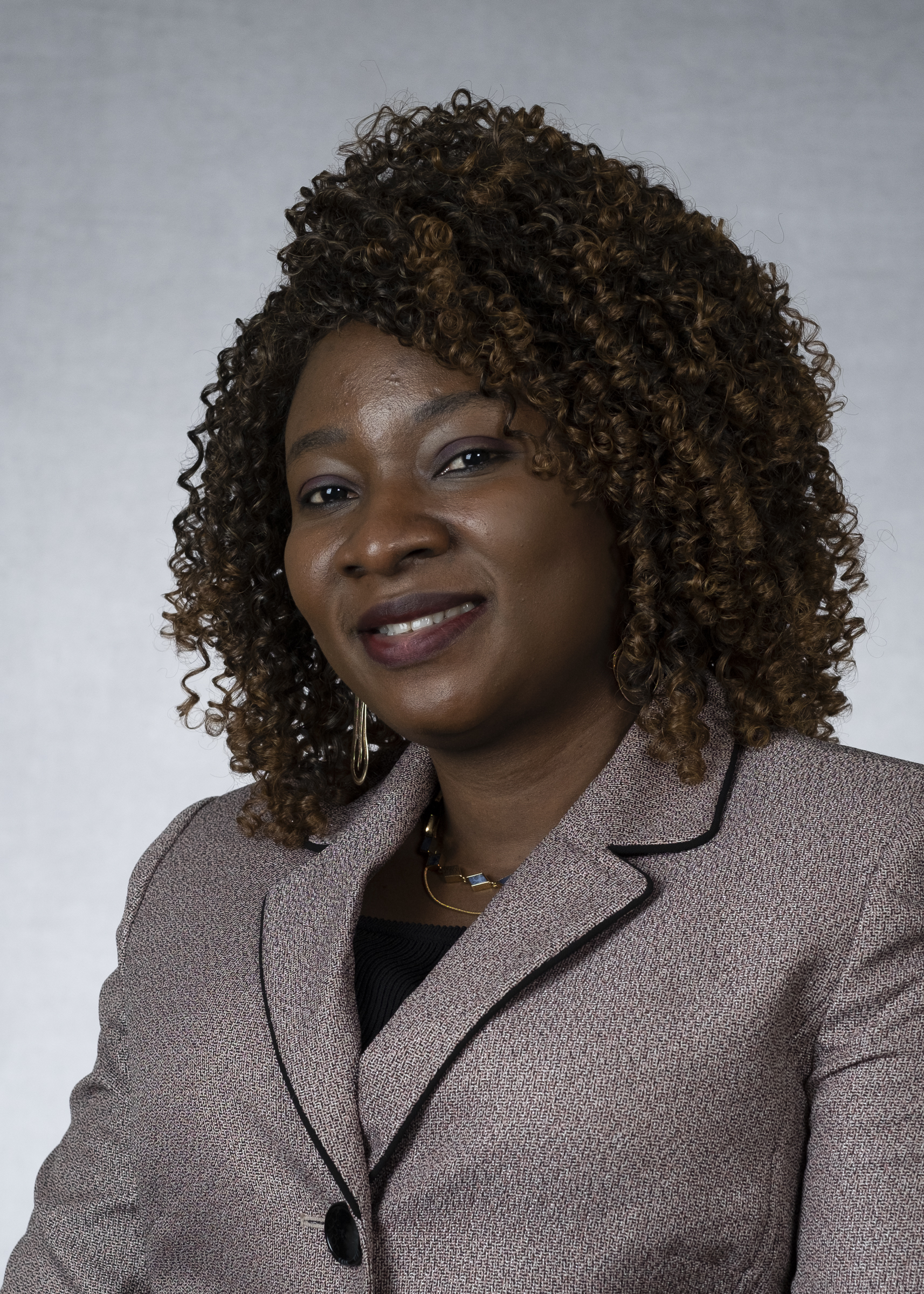
Samira Bashiru
Samira Bashiru is in the second year of her PhD program in Special Education in the Department of Educational Studies.
Read more about Samira Bashiru
Where are you from and what did you do prior to your PhD program?
I am originally from Ghana. I was an instructor for Disability Studies and Early Learning and Childcare and a Disability Studies Practicum Coordinator for students and student-teachers at Norquest College of Edmonton, Alberta, Canada.
Why did you choose Purdue and your area of concentration?
I graduated with my master’s degree here at Purdue University a few years ago and I am returning to pursue a doctorate program in special education because of the university’s tradition, beauty, and academic reputation. I am back to the College of Education due to the highly relevant, theme-based curriculum, the exceptional quality of the professors, leadership opportunities, and the diverse student population that is characteristic of Purdue University. The professors combine excellent educational materials with effective teaching methods in the university’s state-of-the-art teaching and learning facilities.
What are your areas of research interest? What led to your interest in these areas?
I am interested in best practices & instructional strategies for English learners with disabilities, and I am also looking into teacher training for nurturing creativity in English learners with disabilities. I chose this research interest to address the critical need for effective educational approaches that cater to the unique needs of English learners with disabilities, ensuring inclusive and equitable learning experiences. Also to explore teacher training for nurturing creativity in this specific demographic can contribute to more holistic and empowering educational practices.
What have been the highlights of your research experience so far?
So far, the standout aspects of my research experience have been the exceptional support I’ve received from my academic advisor, Dr. Smith, and the valuable guidance provided by my preliminary committee.
Where do you hope to be in five years?
My hope is to complete my doctoral program and secure a Special Education faculty position in a highly-ranked university in the United States. I also plan to conduct and publish at least one to two scholarly articles annually, present research findings at local and national conferences, mentor other students and be a curriculum developer. My goal is to impact pre-service educators’ education to help them grow intellectually and prepare for a professional career.
What advice do you have for your fellow graduate student researchers?
Graduate student researchers should prioritize organization, clear goal-setting, and effective time management to succeed in their academic pursuits. Seeking feedback, networking, and collaboration can enrich their work, while staying informed through literature review and maintaining a healthy work-life balance are equally important. Flexibility, self-care, and ethical conduct should guide their research endeavors, alongside regular writing and celebrating milestones. Perseverance, curiosity, and resource utilization are keys to a successful research journey, with the understanding that perfection is not the ultimate goal. Embracing the unique challenges and learning experiences of graduate research is essential, and seeking guidance and support when necessary is encouraged.
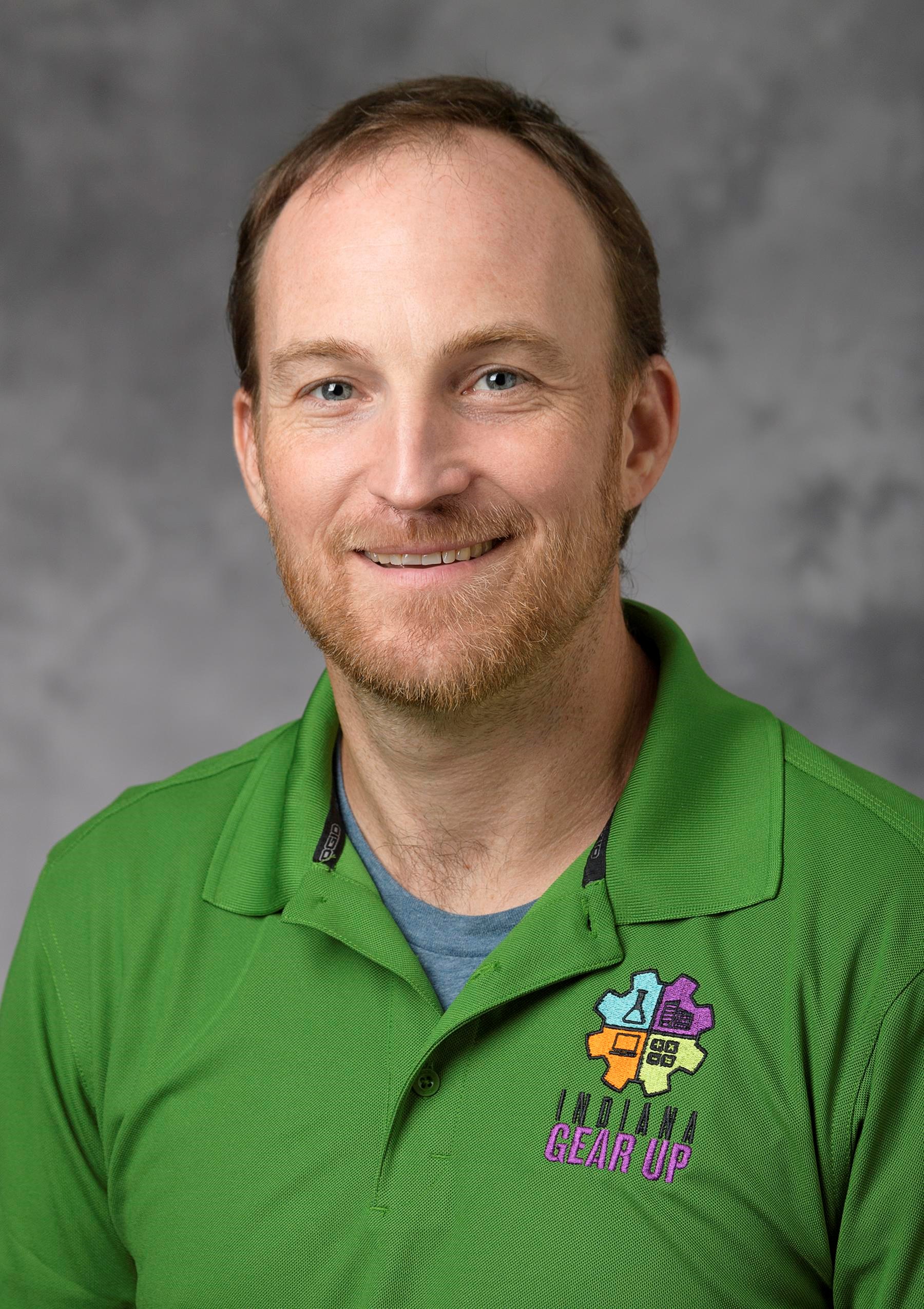
Steve Heinold
Steve Heinold is in the fourth year of his Curriculum Studies doctoral program in the Department of Curriculum and Instruction.
Read more about Steve Heinold
Where are you from and what did you do prior to your PhD program?
Born & raised in Indiana – live in West Lafayette. I was a secondary math teacher for 10 years in a variety of schools in California & Indiana.
Why did you choose Purdue and your area of concentration?
I work for the College of Education – Indiana GEAR UP grant. We support 8000 students from 9 underserved communities in Indiana with tutoring, afterschool & summer STEM programming, college & career support, and teacher training.
I like the focus on equity & inclusion in the Curriculum Studies program in the Purdue COE, and with my GEAR UP work based in STEM education. It’s a perfect combination for my research interests.
What are your areas of research interest? What led to your interest in these areas?
I would like to understand the benefits of STEM education integrated into mathematics curriculum in underserved schools across Indiana and learn more about the experiences of teachers and students who participate in STEM programming.
What have been the highlights of your research experience so far?
I have enjoyed interviewing principals from schools in underserved communities. I have learned about the changing priorities and needs for public schools during, before, and after the Covid-19 pandemic and how it’s specifically affected students and teachers. I look forward to learning more about teachers’ and students’ experiences with STEM education and if STEM integration can be a liberatory experience for their schools and communities.
Where do you hope to be in five years?
In 5 years, I hope to be continuing to support Indiana GEAR UP students and teachers across the state and have completed my PhD.
What advice do you have for your fellow graduate student researchers?
My advice would be to slow down in the whole process and say yes to building experiences in research and presenting at and attending conferences instead of just completing classes and credits as fast as possible to get to the end of the process.
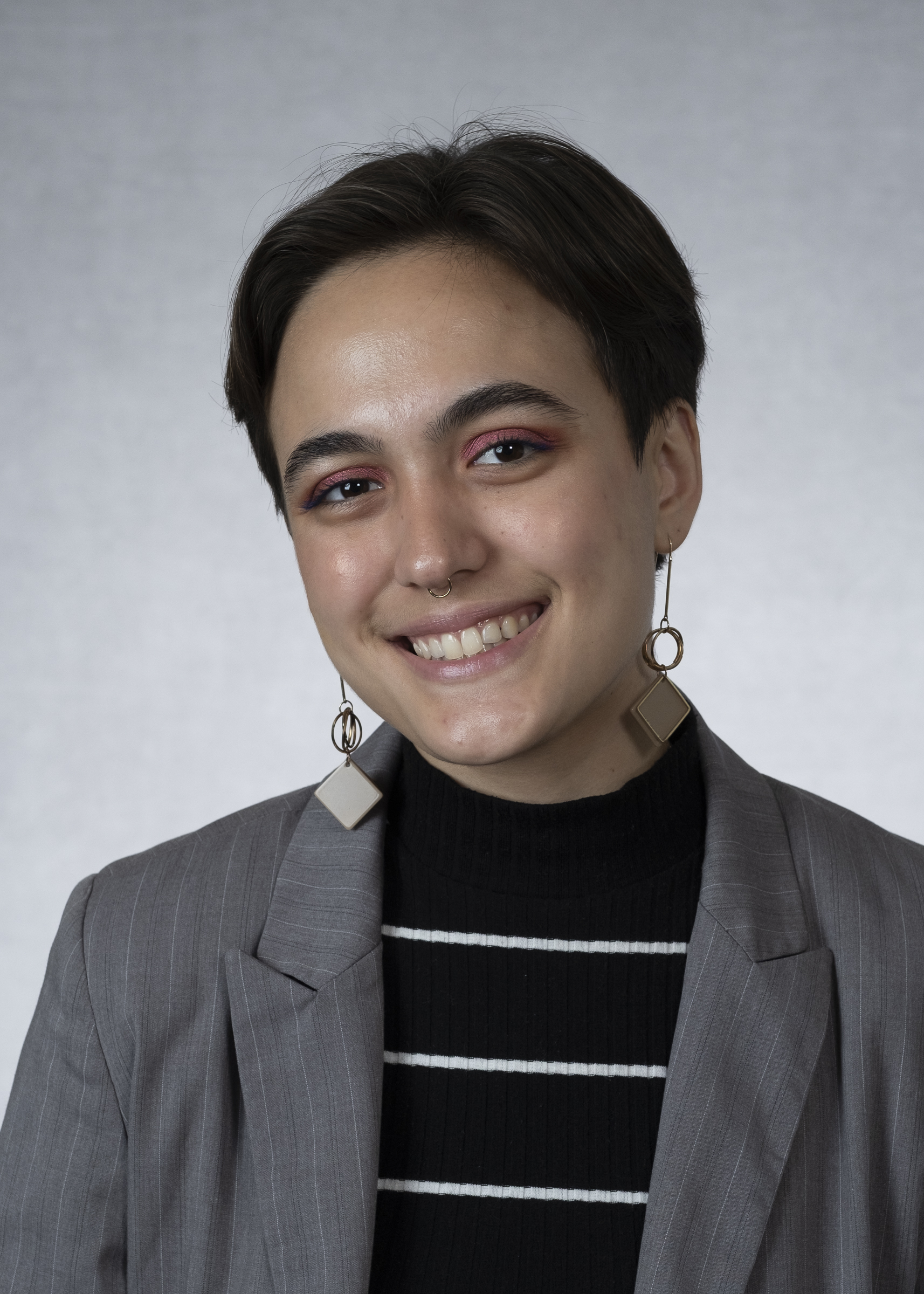
Karabella Hernandez
Karabella Hernandez is in the second year of her PhD program in Counseling Psychology in the Department of Educational Studies.
Read more about Karabella Hernandez
Where are you from and what did you do prior to your PhD program?
I was born in North Carolina, lived in Missouri for several years, and then went to undergrad at the College of Wooster in Ohio. Here I majored in Psychology with a minor in Women’s, Gender, & Sexuality Studies and graduated in May of 2022 with my Bachelor’s degree.
Why did you choose Purdue and your area of concentration?
My undergraduate advisor also attended Purdue for her PhD and inspired me to apply here; further, the Counseling Psychology program seemed rigorous and appeared to have a strong community.
What are your areas of research interest? What led to your interest in these areas?
Currently, my research focuses on improving mental health care for trans clients, particularly those with intersectionally marginalized identities. I am currently developing a conceptual framework based on client perspectives to guide practitioners’ work with this population. My own belonging in the queer community and my observations of the paucity of research on mental health care with this population led me to choose this as my research focus.
What have been the highlights of your research experience so far?
Presenting on my developing conceptual model at APA 2023 and connecting with those interested in the area afterwards were very rewarding in showing me that this work is needed and relevant.
Where do you hope to be in five years?
In five years, I hope to have just completed my dissertation and clinical internship and to have graduated from Purdue with my PhD. At that point, my goal is to apply to and work in a postdoc fellowship for a year to accrue more supervision hours in order to obtain my license as a psychologist and eventually have my own private practice.
What advice do you have for your fellow graduate student researchers?
At this point in my graduate career, I am fortunate to have homed in on a research area that is both interesting to me and highly relevant currently to the field. Thus, my main piece of advice to other graduate researchers is to give yourself time early on in grad school to identify areas and topics that actually genuinely get you excited and you feel that you could do sustainable work on. The work will be more rewarding this way!
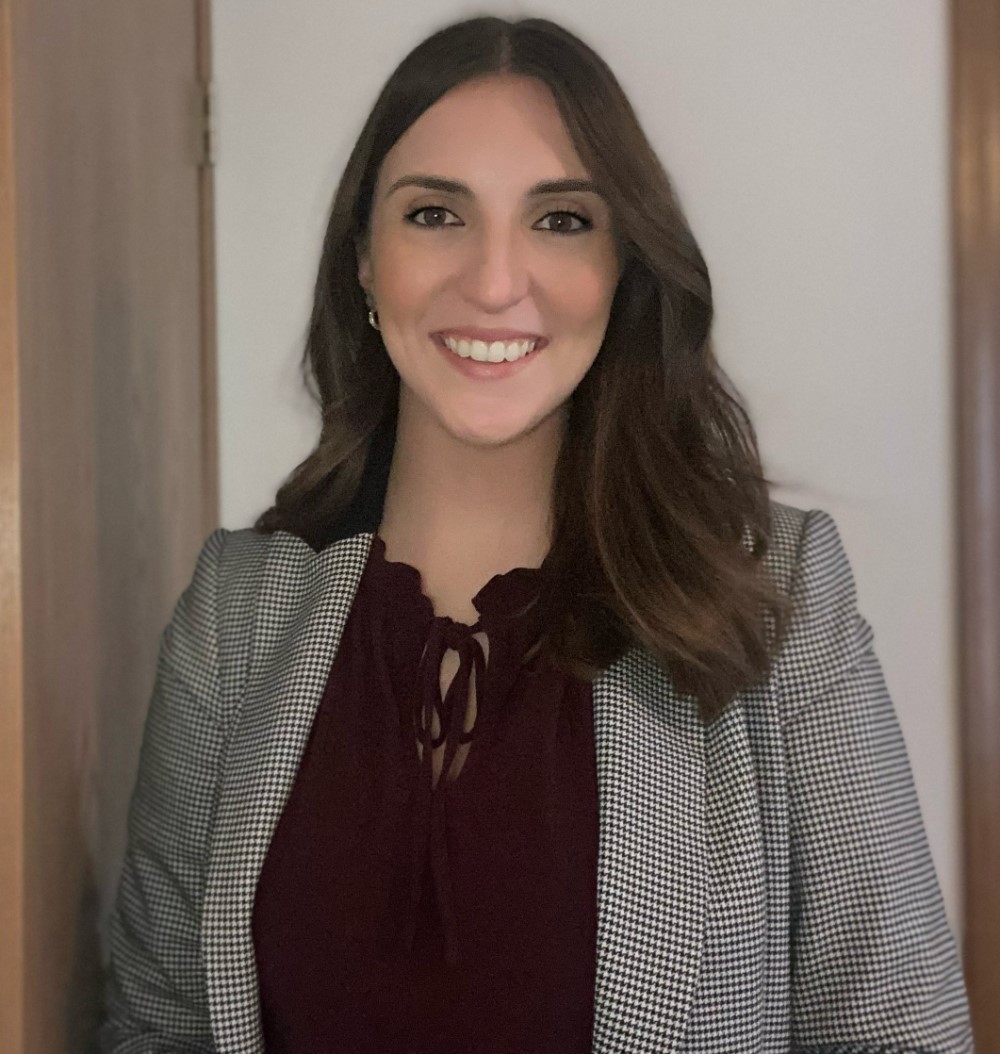
Gina Zaccagnini
Gina Zaccagnini is in the second year of her PhD program in Science Education in the Department of Curriculum & Instruction.
Read more about Gina Zaccagnini
Where are you from and what did you do prior to your PhD program?
Pittsburgh, Pennsylvania. I graduated with my bachelor’s from Purdue in 2018; worked at an engineering firm in Indianapolis until Fall of 2020; while working at the firm, I went back for my Master’s at Purdue from 2019-2021; graduated in 2021 with my Master’s and began the PhD program in fall of 2021. I am anticipating a May 2024 graduate date!
Why did you choose Purdue and your area of concentration?
I decided to stay at Purdue because I really liked my advisor and I appreciates how she is very helpful and pushes me to work hard and try as best as I can to become a good researcher and future faculty member. I was also presented with many great opportunities of being a graduate researcher, becoming a teaching assistant for the biology education courses, as well as becoming a graduate assistant with the Academic Success Center here on campus.
What are your areas of research interest? What led to your interest in these areas?
I am interested in culturally relevant learning and teaching within secondary education environmental science classrooms. Since my background is within environmental science and my higher ed focus is on education, I wanted to find a way to combine the two so I can use my obtained skills from each program to contribute to equitable science learning.
What have been the highlights of your research experience so far?
Being on various research teams and gaining experience in both qualitative and quantitative research methods. I also have experienced the beginning stages and processes of starting a research project, as well as being a part of the grant writing for a project.
Where do you hope to be in five years?
In five years, I hope to be a faculty member (professor) at a university where I can continue on with my research endeavors, but also have the opportunity to teach classes as well.
What advice do you have for your fellow graduate student researchers?
Take advantage of any and all opportunities being presented to you. It not only helps with networking, but it also helps make you a well-rounded researcher, educator, and person!
September 2023
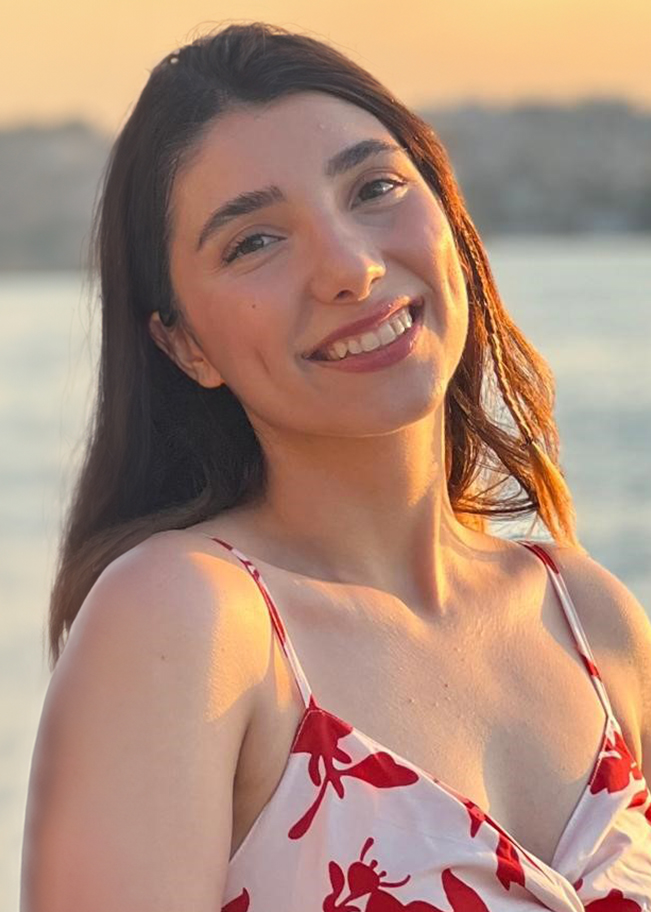
Negar Bakhshandeh
Negar Bakhshandeh is in the second year of her Language and Literacy doctoral program in the Department of Curriculum and Instruction.
Read more about Negar Bakhshandeh
Where are you from and what did you do prior to your PhD program?
I am from Iran, and I have taught English to ELLs from a variety of native languages and cultures for almost 11 years. I also did my Master’s and Bachelor’s back in Iran in English Teaching and have been busy doing research studies on Language learning, teaching, and teacher education.
Why did you choose Purdue and your area of concentration?
I chose Purdue University for my doctoral studies because it is nationally and internationally ranked amongst the top 50 institutions in my major. Additionally, Purdue allows students to explore different departments and programs, fostering an individualized perspective and contributing to the field in unique ways. The faculty’s expertise in the Department of Curriculum and Instruction, particularly in areas like Language and Literacy Studies and Educational Equity, aligns well with my research interests.
What are your areas of research interest? What led to your interest in these areas?
My research interests encompass Teachers Education, Belief, and Cognition; Language Testing and Assessment; Global (Language) Assessment Policies; Educational Reform, and Language and Culture. These interests have developed from my experiences as an educator and my curiosity about various aspects of language education. For instance, I became interested in the impact of online language classes on learners’ anxiety and motivation during the pandemic, leading to a research paper on the subject. I’ve also been intrigued by the fairness of high-stake language tests and the need for more customized assessments for different majors and disciplines.
What have been the highlights of your research experience so far?
One of the highlights of my research experience was collaborating with Professor Sharifian from Monash University, Australia, on a cultural paper. It was a unique opportunity that arose from my determination and curiosity. Additionally, conducting research on the impact of online language classes during the pandemic and exploring factors affecting successful language learning have been rewarding experiences.
Where do you hope to be in five years?
In five years, I aim to have completed my doctoral degree and established myself as a language-assessment specialist. I aspire to work with organizations like IDP or ETS, where I can contribute to the development of fair and discipline-specific language-assessment tests. Ultimately, I want to work with students from diverse backgrounds to improve global education through a more accurate understanding of learning and assessment.
What advice do you have for your fellow graduate student researchers?
My advice to fellow graduate student researchers is to remain curious, ambitious, and passionate about your area of study. Seek out opportunities to collaborate with experts in your field and explore diverse research topics. Don’t limit yourself to theory; combine theory and practice to make a meaningful impact in your chosen field. Additionally, be open to interdisciplinary perspectives, as they can enrich your research and contribute to innovative solutions. Finally, be persistent and dedicated in pursuing your academic and career goals, as hard work and determination can lead to success.
August 2023
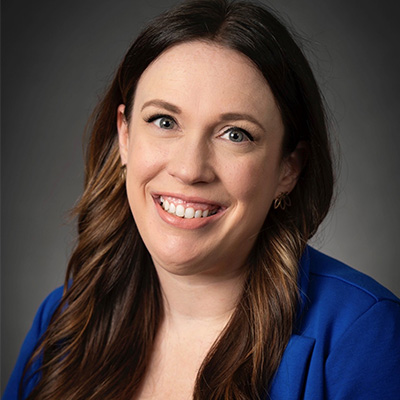
Amanda M. Borosh
Amanda M. Borosh is in the fourth year of her Special Education doctoral program in the Department of Educational Studies.
Read more about Amanda M. Borosh
Where are you from and what did you do prior to your PhD program?
I am originally from Tulsa, Oklahoma, but spent 6 years in Austin, TX and 4 years in Chicago prior to coming to Purdue. Before I started my Ph.D. program I was a special education teacher for students with extensive support needs in public schools. I also spent three years as a district-wide behavior specialist for Chicago Public Schools.
Why did you choose Purdue and your area of concentration?
I chose Purdue primarily because of my advisor’s (Dr. Rose Mason) research interests, particularly around training special education teachers to coach paraeducators to use evidence-based practices. I also chose Purdue because of funding available through a fellowship with the U.S. Department of Education, Office of Special Education Programs. I am a recipient of the CO-LEAD fellowship: Collaboration across universities of Leaders in Evidence-Based Practices, Autism, and Diversity.
What are your areas of research interest? What led to your interest in these areas?
Through a participatory action research approach, my research seeks to support schools in evaluating systems-wide and individual variables that (do or do not) predict, support, and sustain implementation of evidence-based behavioral interventions by school-based staff. Using principles of implementation science and organizational behavior management, my research supports school-based professionals in assessing and intervening with challenging behavior at the school-wide, class-wide and individualized levels.
My personal experiences as a special education teacher and district-wide behavior analyst are what led to my research interests. I realized that it’s not enough to know about evidence-based practices; they must be implemented to fidelity in schools for students to benefit.
What have been the highlights of your research experience so far?
The highlight of my research experience so far has been engaging in participatory action research with an elementary school for the last three years. With school administrators and teachers as co-researchers, we have conducted a program evaluation, piloted a new tier I behavior intervention, and scaled-up implementation of the behavior intervention school-wide. Being actively engaged in a school-university research partnership is mutually beneficial and rewarding for both the school and me as an early career researcher.
Where do you hope to be in five years?
I hope to be in a tenure-track faculty position at an R1 university. Ideally, I would be engaged in long-term community-based participatory research with local schools and districts to support their use of evidence-based behavioral interventions.
What advice do you have for your fellow graduate student researchers?
Relationships are key. Take the time (and it takes a lot of time!!) to build solid relationships with stakeholders and listen to their needs and desires. Follow their lead, even if it takes longer than you want, or shifts a direction you are less interested in. Building relationships is foundational to being a successful educational researcher.
April 2023
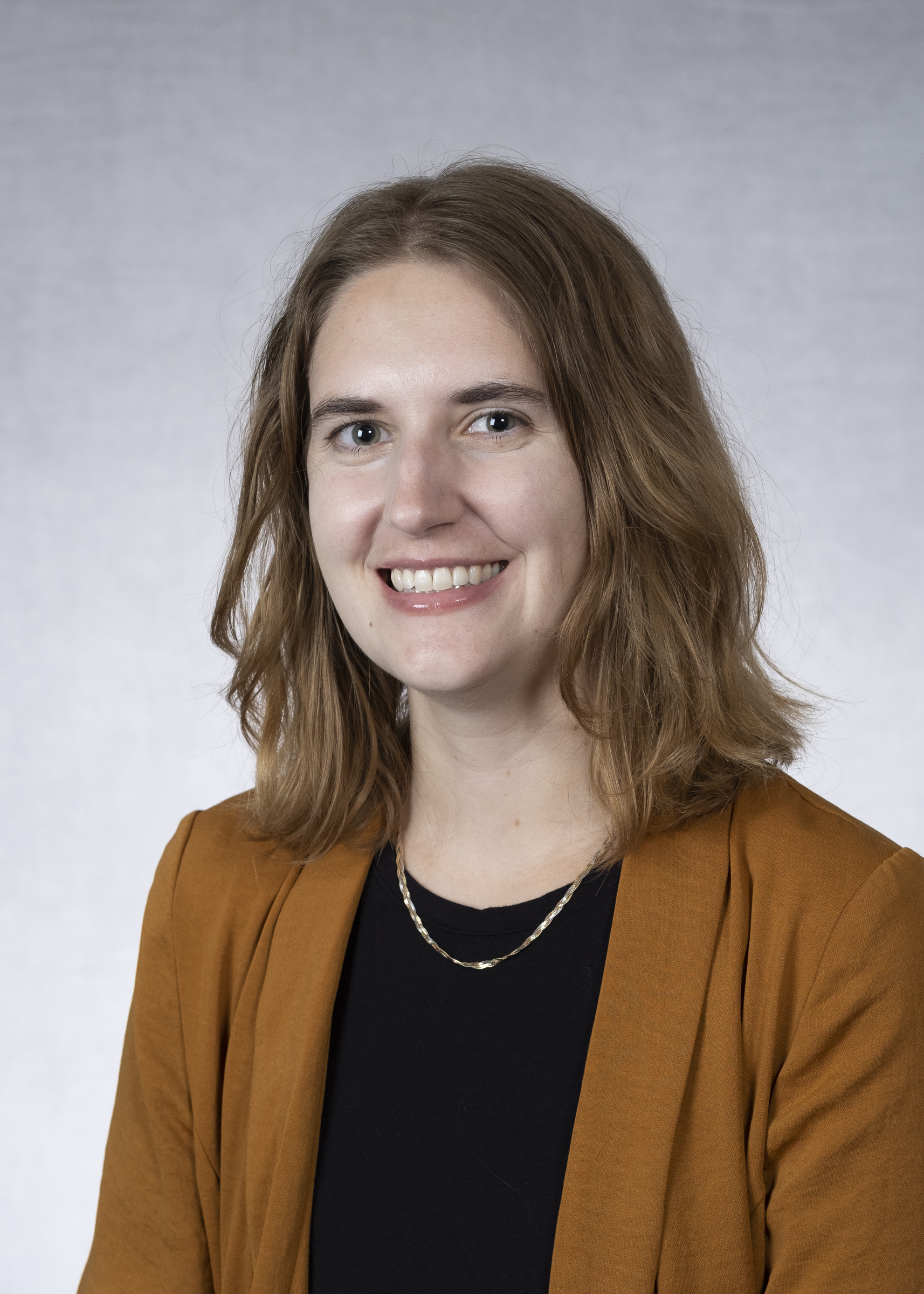
Krista Robbins
Krista Robbins is in the fifth year of her doctoral program studying Counseling Psychology in the Department of Educational Studies.
Read more about Krista Robbins
Where are you from and what did you do prior to your PhD program?
I grew up in the Chicago suburbs and earned my B.A. from Beloit College in Wisconsin. After graduating, I moved to Taipei, Taiwan to teach at an English-immersion kindergarten. I then continued my international employment by moving to Namyangju, South Korea the following year to teach at a K-5 school.
Why did you choose Purdue and your area of concentration?
I chose a degree in counseling psychology because I value a strengths-based and multicultural approach to mental health. I also appreciate that my degree prepares me to engage with clinical work, teaching, research, and outreach. Being involved at different levels of institutions has provided me insight regarding how to make change through a systems approach. I chose to attend Purdue as I believe the faculty and students within my program share my values of social justice and advocacy.
What are your areas of research interest? What led to your interest in these areas?
Speaking broadly, my research program aims to explore strengths-based interventions and psychotherapy outcomes for migrant populations (e.g., international students, expatriates, refugees). In my dissertation, I am investigating the attitudes, behaviors, and demographic factors that influence host-national students’ friendship engagement with international students.
My experiences in the classroom both internationally and on Purdue’s international campus have led to my interest in researching migrant populations. While in graduate school, I have personally experienced the benefits of intercultural relationships and feel strongly about promoting these experiences on campuses through my research.
What have been the highlights of your research experience so far?
Sharing my research (both formally and informally) has been an incredibly meaningful experience for me. I am passionate about my research program and gain so much joy by discussing my findings and ideas with colleagues, students, and friends.
Where do you hope to be in five years?
I hope to be a licensed psychologist on my way to tenure at a small liberal arts college. I truly enjoy teaching and mentoring, so I would like to work at an institution that values these activities. Additionally, I hope to be engaging with clinical work in my community on a part-time basis.
What advice do you have for your fellow graduate student researchers?
Develop a network of support. Research can be a lonely and frustrating process at times, so it is important to have people you can talk to about your challenges. Investing in peer relationships (or a therapist!) create opportunities to feel connected and understood when you face challenges that might otherwise be overwhelming.
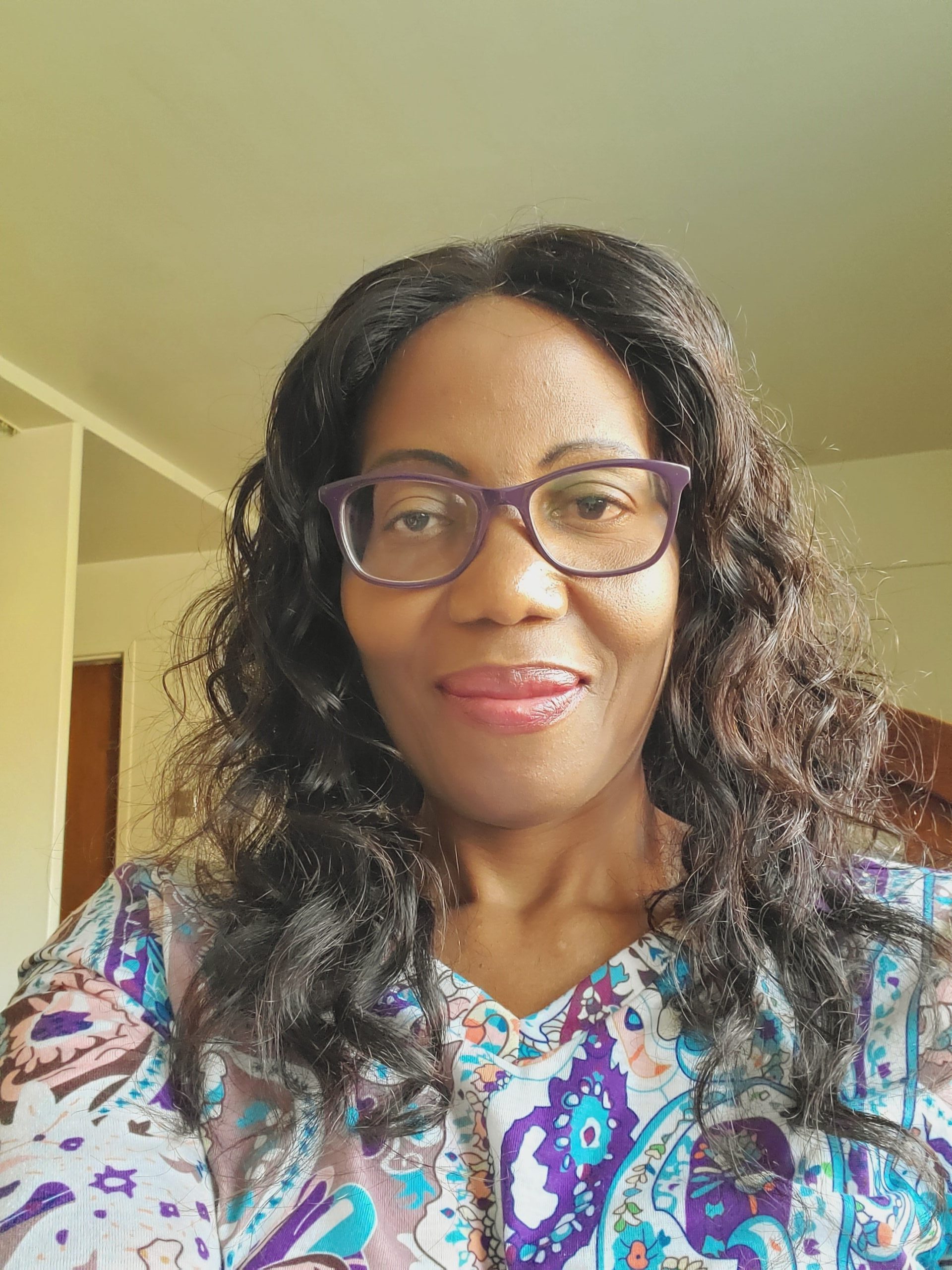
Rose Mbewe
Rose Mbewe is in the fourth year of her doctoral program. She is studying Mathematics Education in the Department of Curriculum and Instruction.
Read more about Rose Mbewe
Where are you from and what did you do prior to your PhD program?
I am from Zambia and prior to my PhD program I taught mathematics in a university teachers’ college.
Why did you choose Purdue and your area of concentration?
I chose Purdue University because it is a prestigious university. I loved it that the university was associated with Neil Armstrong and that Purdue university credentials are very credible. Having taught mathematics for seventeen years both at secondary school and teacher education level, I was troubled by the low student achievement at both levels and hence had a desire to search for solutions by pursuing a PhD course to learn more on the challenges faced by mathematics learners.
What are your areas of research interest? What led to your interest in these areas?
My area of research interest is in global social justice in mathematics education. After the lockdown, I was intrigued to learn of social justice issues for the first time in my life. In my country no one talks about the injustices, we have learned to manage them. After Covid-19 pandemic hit and subsequent lockdown, programs like study abroad were suspended hence the need for interventions to continue collaborations with other nations. The alternative platforms were the virtual platforms that ensured the continuity of these collaborations. Two professors came up with an idea of introducing an online course that would afford participants from diverse countries to participate in discussions of social justice issues and I was an instructor on the course Global Social Justice in Education (GSJE). The course recruited participants from seven countries across the globe. After a semester of participating in the course I started to wonder how we can use mathematics to highlight injustices in our communities. I developed a course – global social justice in mathematics education (GSJME) where we use social justice mathematics to address global issues presented by the UN 2030 agenda for Sustainable Development Goals to highlight the social injustices. Participants were recruited from seven countries across the world (China, Cameroon, Kenya, Nepal, U.S., Tanzania, Zambia)
What have been the highlights of your research experience so far?
Thus far my research has shown that virtual platforms can be ideal places for professional development for teachers. It has also shown that participants coming from diverse backgrounds with diverse cultures can develop intercultural competence on such platforms. My research experience has also shown that mathematics in terms of numbers is a powerful tool for highlighting injustices in the communities.
Where do you hope to be in five years?
I hope to be heading a consultancy firm five years from now.
What advice do you have for your fellow graduate student researchers?
My advice to my fellow graduate students is to explore areas of your interest instead of assigned topics.
March 2023
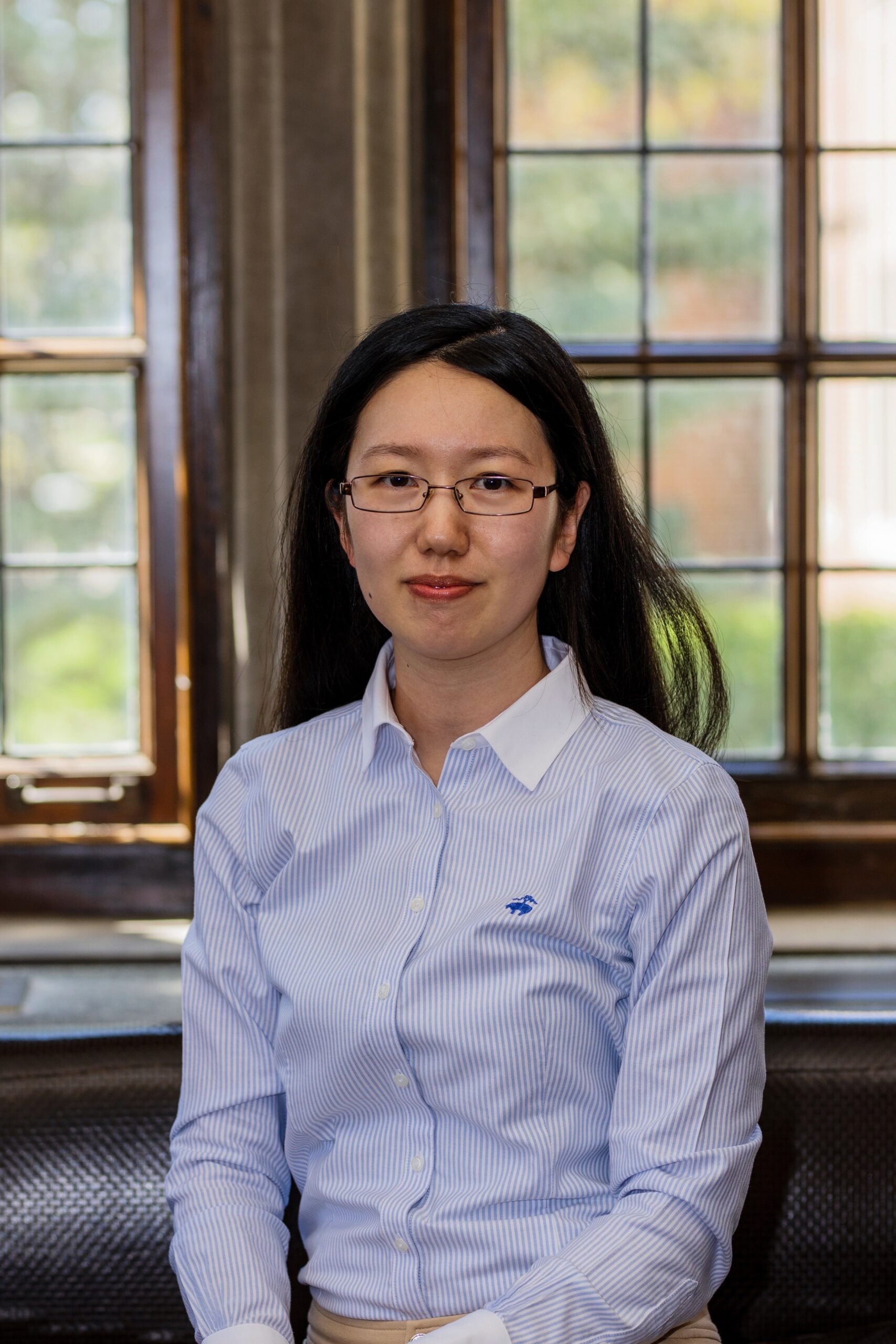
Rong Zhang
Rong Zhang is in her sixth year of her doctoral program studying Language and Literacy Education in the Department of Curriculum and Instruction.
Read more about Rong Zhang
Where are you from and what did you do prior to your PhD program?
I am from China. Before I came to the doctoral program, I worked as an academic director at a Chinese international elementary school.
Why did you choose Purdue and your area of concentration?
Before coming to Purdue, I read about the research the professors in Language and Literacy had been working on. Learning about their research studies broadened my mind and also motivated me to become a researcher in such areas. In addition, the professors in the College of Education are super supportive of doctoral students, which made my mind to come to Purdue.
What are your areas of research interest? What led to your interest in these areas?
My research interests include children’s literature, emergent literacy, multimodality, and family literacy. Picture books have “magic” that attracts young children to become active readers and engage in the reading of them. I want to further explore the affordances from multiple perspectives that can support young children to learn about themselves and others, as well as literacy development.
As a bilingual person myself, I had lots of literacy practices at home during my childhood. Those experiences were very helpful for my academic learning in schools. I would like to continue working on exploring the valuable resources and supports that are already happening at home settings of emergent bilingual families that should be valued and inform teaching for teachers.
What have been the highlights of your research experience so far?
It is excited when seeing young children using multiple types of meaning-making while reading picture books, such as rich body language, facial expressions, etc., as well as the rich supports and literacy practices that happen in the homes of bilingual families. In addition, when presenting my research results at conferences, the audience, including teachers and scholars from other institutions, are amazed and agree with what we found, and build connections from that.
Where do you hope to be in five years?
I would like to continue working on research regarding wordless picture books and emergent bilingual family literacy practices. I would like to explore the benefits and challenges of promoting the use of wordless picture books in classroom teaching. In addition, I will continue my work with emergent bilingual families and study about children’s multimodal interactions with family resources as ways of developing language and literacy skills.
What advice do you have for your fellow graduate student researchers?
I would like to advise graduate students to be familiar with your doctoral career plan as early as possible to set goals for each stage of the doctoral program and work hard towards it. Also, it is helpful to seek collaborations with diverse professors, peers, and scholars within and beyond our college to develop research studies.
February 2023
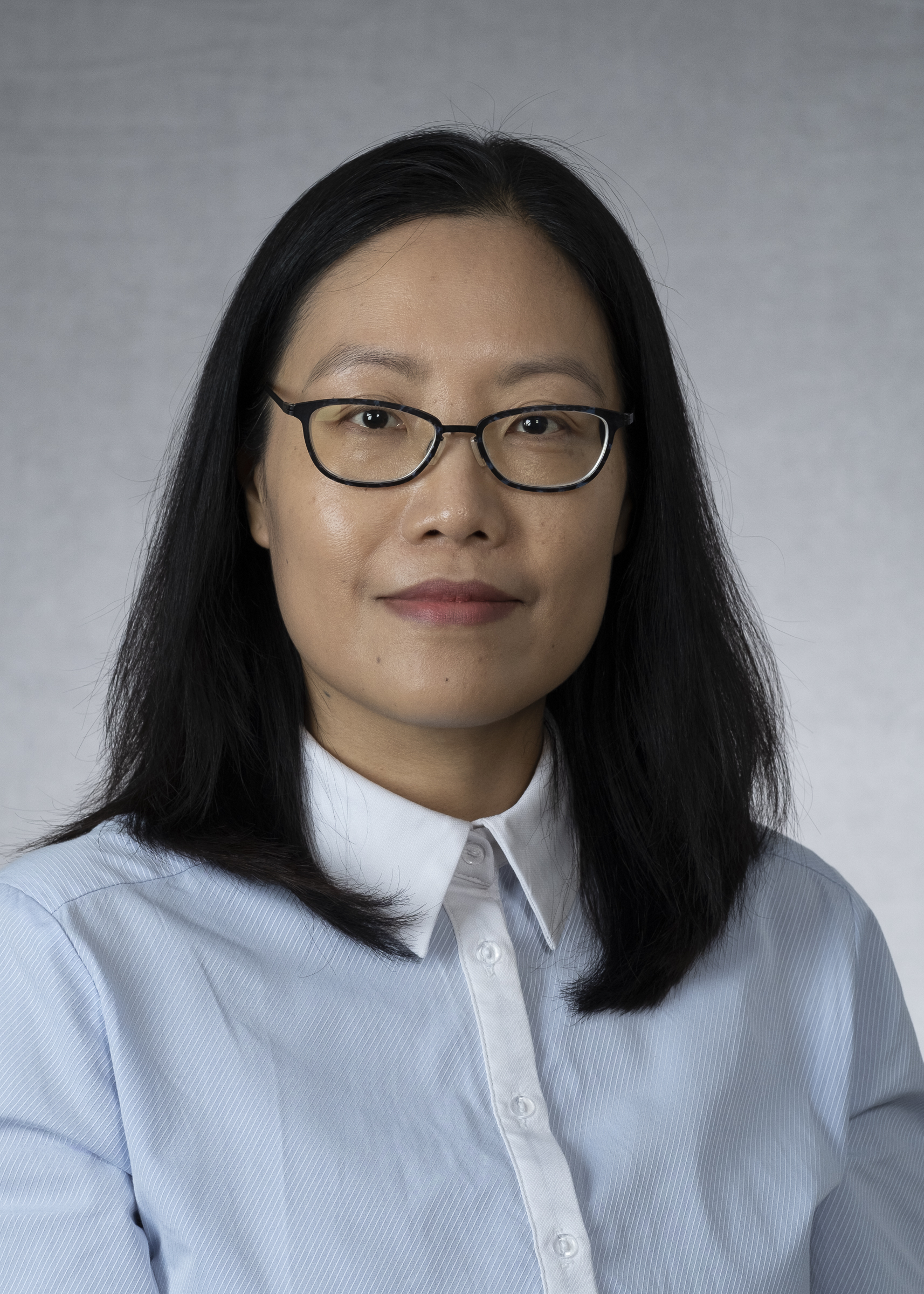
Fangfang Mo
Fangfang Mo is a 1st year PhD student studying Gifted Education in the Department of Educational Studies.
Read more about Fangfang Mo
Where are you from and what did you do prior to your PhD program?
I have a diverse professional background, including experience as a German-Chinese interpreter and translator in both Shanghai and Singapore. Subsequently, I worked as a Chinese language teacher in both Singapore and Syracuse, NY. Prior to my doctoral study, I worked as a TA in the Fayetteville-Manlius School District in Syracuse, NY.
Why did you choose Purdue and your area of concentration?
I selected Purdue as the institution for my doctoral study due to its reputation as a leader in the field of education. The GER2I in the College of Education at Purdue has earned a reputable status in the realm of gifted education worldwide. The faculty consists of renowned scholars who possess extensive knowledge and experience in the field. Additionally, my advisor’s research aligns with my personal research interests. Lastly, the diverse cultural atmosphere among the international student body at Purdue provides a source of inspiration for me.
What are your areas of research interest? What led to your interest in these areas?
My research focuses encompass a range of topics, including the study of creativity and related topics, examination of social-emotional issues affecting gifted adolescents, exploration of alternative identification methods that do not rely on IQ or other cognitive assessments, and investigation of underachievement among gifted female students, especially those from underrepresented backgrounds.
My passion for the field of gifted education was fostered while serving as a Chinese language teacher in Singapore. During that time, I had the opportunity to work closely with gifted students and became aware of their unique academic and social-emotional needs. I observed that some of these gifted students were at risk due to a lack of appropriate educational support. This experience motivated me to further explore the needs of gifted students and seek ways to help them reach their full potential and make a meaningful contribution to society.
What have been the highlights of your research experience so far?
As a novice in the field of gifted education, I have been actively working on several research projects that align with my research interests. My current projects include exploring underachievement among gifted female students from financially impacted families in the aftermath of the pandemic, examining the potential social-emotional impact of the pandemic on gifted adolescents, and investigating gifted students’ perspectives on the influence of ChatGPT and other AI applications. I hope that my research will make a dent in the field, no matter how small.
Where do you hope to be in five years?
In five years, I see myself as a tenure-track assistant professor at a leading research university, where I can continue to advance the field of gifted education through my research, teaching, and engagement. My goal is to make a meaningful impact on the lives of gifted individuals and the broader community through my dedication and commitment to this field.
What advice do you have for your fellow graduate student researchers?
I would like to share a valuable lesson that I have learned from my advisor with my fellow graduate student researchers. It is of utmost importance to maintain a balanced work-life equilibrium and to prioritize one’s commitments. It is essential to constantly reflect on what truly holds significance in one’s life and to allocate one’s time and resources accordingly. By doing so, one can cultivate a harmonious and fulfilling existence, both professionally and personally.
January 2023
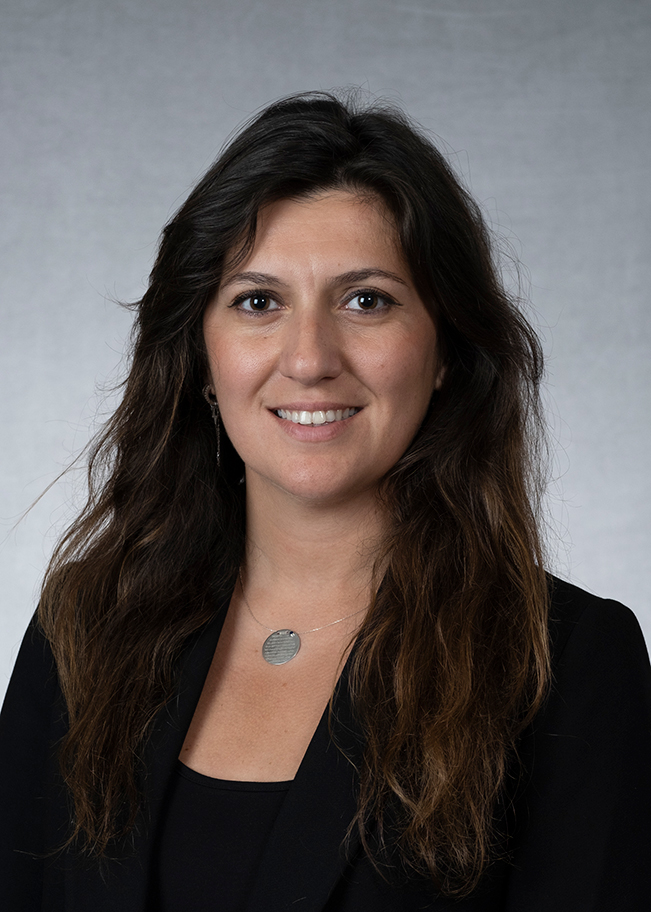
Zeynep Gonca Akdemir
Zeynep Gonca Akdemir is a 4th year PhD student studying Science Education in the Department of Curriculum and Instruction.
Read more about Zeynep Gonca Akdemir
Where are you from and what did you do prior to your PhD program?
I am from Turkey. Before my PhD I was working as a research assistant at a private university in Istanbul, Turkey.
Why did you choose Purdue and your area of concentration?
Purdue is a well-known university in STEM Education research and I had a great chance to work with one of the successful professors in his Engineering Education lab team.
What are your areas of research interest? What led to your interest in these areas?
My research interests are investigating what motivates middle school students in learning STEM and science in particular. Along this line, I am specifically researching how students’ achievement and motivation is linked to their engagement profiles. Before joining Purdue, I was interested in looking at reading comprehension profiles of low and high achieving middle school students. Then, I noticed that educational psychology literature broadly captures different abilities and disabilities from the lens of motivation and engagement. I think it is exciting to look at middle schoolers’ science learning profiles from different motivation and engagement frameworks.
What have been the highlights of your research experience so far?
The research team I am involved with is very productive and friendly. I had a chance to work on various projects which were focusing different methodologies in education research. The greatest highlight would be the published articles we had so far. As an end product, I had a chance to lead one of the articles which were recently published in the Science Teacher. I think learning several methodological approaches during research is an important piece that would take in future endeavors. My work in the lab allows me to improve my research skills not only by assisting but also by giving me the authority to manage different tasks to be able to sustain projects on my own.
Where do you hope to be in five years?
In five years, I would like to be a successful science teacher educator in the field. Also, I would like to conduct comparative studies here and abroad to explore science learning motivation profiles of middle school students. In addition, I would like to be able to conduct science education projects that would be supporting the needs of students with learning difficulties.
What advice do you have for your fellow graduate student researchers?
As an ongoing fellow doctoral student researcher, I would recommend my colleagues to precisely decide on what they would like to do for life. Their life goals should be matching with the tasks they do in their graduate studies too. Getting to know themselves can be one of the key points for them to pursue their desires. Choosing the best mentor and finding themselves a compatible researcher in their lab team would give them the courage to do and achieve more.
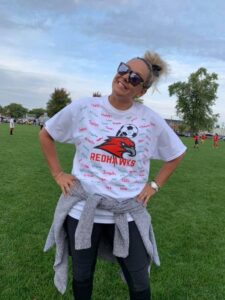
Tami Hicks
Tami Hicks is a 2nd year PhD student studying Educational Leadership and Policy.
Read more about Tami Hicks
Where are you from and what did you do prior to your PhD program?
I am from Goshen, Indiana and I have been in public education for 16 years. For the first five years of my teaching career, I taught seventh grade social studies. This was followed by three years as a Master Teacher, conducting action research and leading staff in professional development while coaching teachers. This was the catalyst for me to become an administrator and I spent three years as an Assistant Principal. I am now in my fifth year as Principal at Model Elementary School in Goshen, IN.
Why did you choose Purdue and your area of concentration?
I chose Purdue over other educational institutions because of its reputation for excellence. Purdue is a tier one University and several of my role models and mentors earned their doctorate degrees from Purdue. They speak very highly of their experience. Educational Leadership is a passion and it is my career. The next logical step would be to pursue this avenue for research and a dissertation. If I was to be a part of making changes to the systems for public education, I need to have a vast knowledge of education from a different view, a view outside of my role as a principal.
What are your areas of research interest? What led to your interest in these areas?
My areas of interest are wide. This has proven to be a challenge because I want to know more about so many different areas of public education. I would be amiss to not mention the impact that COVID-19 has played in potentially reshaping the American Public Education System. The pandemic, along with the insurmountable pressure under which administrators are facing student achievement data, I am leaning toward researching the influence of support from district leadership on the principals in their district. Can a close and professional relationship between these two roles make or break a principal’s tenure in their position? Quantitative and qualitative could both be used to yield results.
What have been the highlights of your research experience so far?
The highlights of my research thus far have been interesting. Oftentimes, I am finding that what is originally hypothesized is not proven by the data. There are also large amounts of independent variables that play key roles in the research and in each district, each principal is a situational circumstance. Research is leaving me with more unanswered questions.
Where do you hope to be in five years?
In five years, I hope to be leading a group of administrators on how to effectively run a school with not only high student achievement but with the drive and passion to have exemplary, whole child schools. This could be in the role of a district leadership position, a professor, a consultant, etc.
What advice do you have for your fellow graduate student researchers?
This advice was given to me by a Purdue research professor during our first research course. Take time to read for fun, for pleasure. Continuing to read for enjoyment makes you a better reader for research. If you spend all of your time reading peer reviewed articles about what you are researching, you will burn out at a much quicker rate. Giving the brain a break from research and allowing other parts of the brain to be activated with a good mystery novel, a biography, or something unrelated to your topic and extremely healthy for the mind to function at its best. When it’s 8 pm and I feel like I should be reading the latest article I found, I stop myself and read my book for fun and I have stopped feeling guilty about it.
2022 Spotlights
December 2022
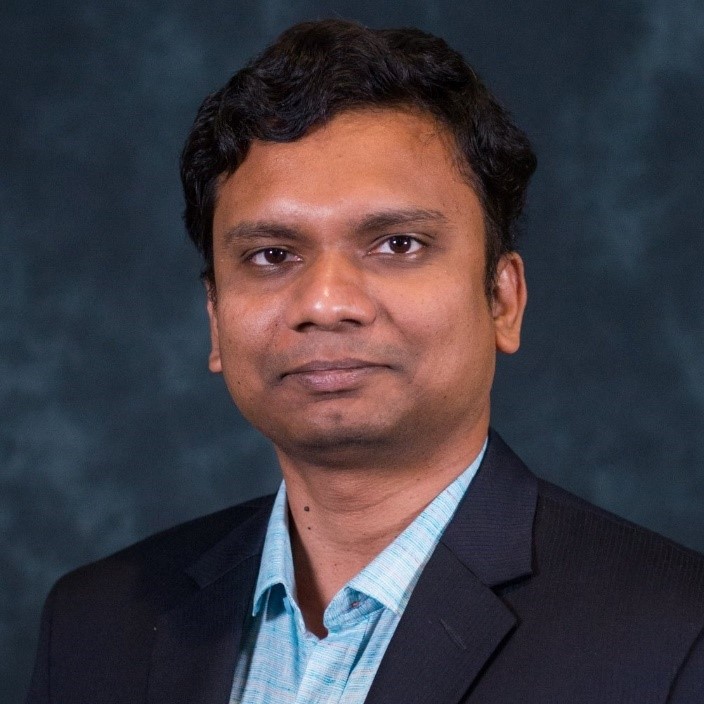
Mohammad Shams Ud Duha
Mohammad Shams Ud Duha is a fifth-year PhD student studying Learning Design & Technology in the Department of Curriculum and Instruction.
Read more about Mohammad Shams Ud Duha
Where are you from and what did you do prior to your PhD program?
I am originally from Bangladesh. It is a beautiful country in South Asia. Before joining the program, I taught English at Brac University in Bangladesh. I also taught Bengali at Indiana University under the Fulbright program in the 2015-16 academic year.
Why did you choose Purdue and your area of concentration?
I chose Purdue because it has a strong education program. I was also familiar with my advisor Dr. Jennifer Richardson’s work. As part of the Fulbright teaching program, I was required to take two courses per semester. I took two courses that focused on education and technology and gradually developed an interest in this field. My area of concentration is learning design and technology.
What are your areas of research interest? What led to your interest in these areas?
My research interests revolve around the online learning environment, social media in education, and microlearning. I recently completed a project that investigated to what extent students’ prior online learning experience affects different student outcomes, including cognitive presence, engagement, and satisfaction. I am also working on several collaborative research projects with Bangladeshi universities that are exploring the use of Facebook for language learning. I am also co-leading an inter-institutional team that is working on creating a framework for microlearning design and development. I have always been intrigued by the power of technology to bring changes, which led me to further investigate the connections between technology and pedagogy.
What have been the highlights of your research experience so far?
I have been working on multiple research projects with my advisor and other faculty members. These experiences have significantly shaped my current understanding of research. The highlights of my research experience so far are I have presented my research findings in some of our major conferences including AERA and AECT.
Where do you hope to be in five years?
Generally, I would like to continue teaching, research, and service. In 5 years, I would like to identify one area in our field where I would like to contribute significantly for the rest of my academic career. Therefore, it will involve exploring the field extensively and prioritize one area.
What advice do you have for your fellow graduate student researchers?
I would like to encourage fellow graduate students to seek service opportunities alongside research and teaching. It is personally rewarding, and it will bring many opportunities.
November 2022
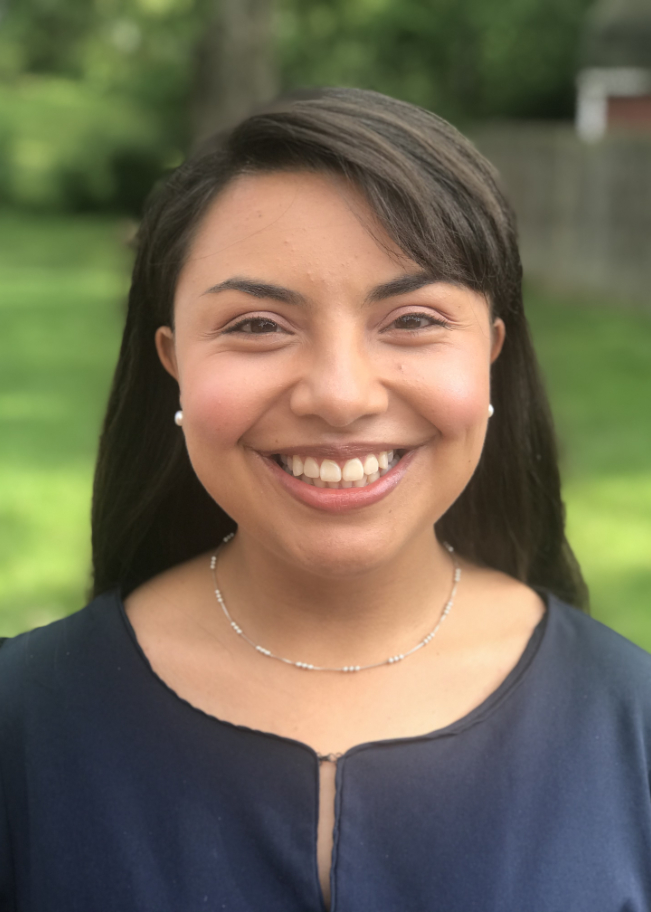
Daniela (Ela) Castellanos-Reyes
Daniela (Ela) Castellanos-Reyes is a fourth-year PhD student studying Learning Design & Technology in the Department of Curriculum and Instruction.
Read more about Daniela (Ela) Castellanos-Reyes
Where are you from and what did you do prior to your PhD program?
I’m from Bogotá, Colombia (spelled with o 🙂 ) . I came to grad school right after my undergrad in English Teaching. I taught English to undergrads and worked as an undergrad assistant at my alma mater, Universidad Nacional de Colombia.
Why did you choose Purdue and your area of concentration?
It was God’s guidance and a brunch. I did a research internship at the Gifted Education Resource and Research Institute advised by Dr. Nielsen Pereira. I learned about what doing educational research meant while working with Dr. Pereira. I thought it was the coolest thing on earth but that I was interested in the role of technology and media in education. While having a brunch in Bogotá with Dr. Marcia Gentry and Dr. Jennifer Richardson, I shared my interests with them and Dr. Richardson mentioned that the program “Learning Design and Technology” was a good fit for me. Here we are, some years later, and loving the perfect fit. So, if you have second thoughts about having brunch… go for it!
What are your areas of research interest? What led to your interest in these areas?
I believe that distance education is one approach to improve people’s life. My goal is to support adult learners and nontraditional students (e.g., single parents, working adults) to improve their quality of life through distance learning. Yet, I’m a strong advocate of networked learning and learning in networks (tongue twisters everywhere!). So, my focus is within the fields of instructional design and learning analytics to understand learners’ networks and their interaction with online learning environments. I am also an advocator of Open Pedagogies. My work spans from the use of Open Educational Resources (OERs) to Social Networking Sites (SNSs), to Massive Open Online Courses (MOOCs); yet, all converge on finding alternative and inexpensive technology platforms for education in a connected world.
What have been the highlights of your research experience so far?
• My most recent publication in Computers and Human Behavior. I’m very proud of publishing there 🙂
Castellanos-Reyes, D. (2021). The dynamics of a MOOC’s learner-learner interaction over time: A longitudinal network analysis. Computers in Human Behavior, 123, 106880. https://doi.org/10.1016/j.chb.2021.106880
• The relationship that I have with my advisor Dr. Jennifer Richardson. She’s so much fun 🙂 And working with Dr. Yukiko Maeda. I have two awesome role models!
• Being the first student at Purdue University who received the International Peace Scholarship granted by the P.E.O. International.
Where do you hope to be in five years?
I want to be winning grants to support awesome grad students like you! But if that doesn’t work. I’ll work in industry.
What advice do you have for your fellow graduate student researchers?
Done is better than perfect. Take care of your health (for real!).
October 2022
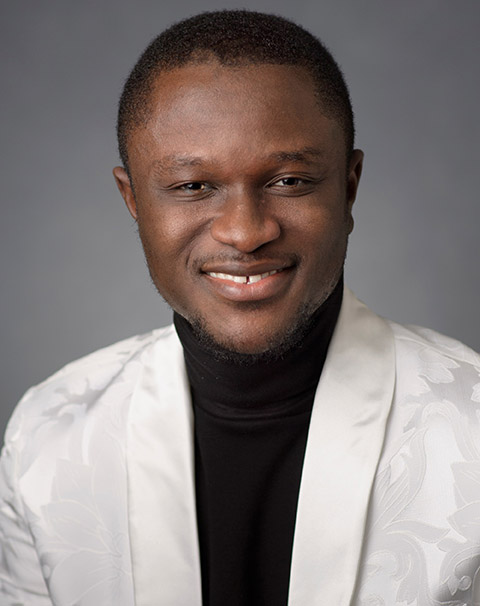
Razak Dwomoh
Razak Dwomoh is a fourth-year Ph.D. student studying Social Studies Education in the Department of Curriculum and Instruction.
Read more about Razak Dwomoh
Where are you from and what did you do prior to your PhD program?
I am from Ghana, and I taught as an elementary, middle, and high school teacher. I did my master’s in Curriculum and Instruction (Elementary Education) at EIU before joining the Ph.D. program at Purdue.
Why did you choose Purdue and your area of concentration?
I chose Purdue because there are diverse, welcoming, and supportive students and faculty. The program is rigorous and provides rewarding service-learning and community engagement opportunities to practice teaching and conduct research.
What are your areas of interest? What led to your interest in these areas?
My research interest is developing elementary and young adults’ historical thinking and critical thinking skills into becoming active, democratic, and global citizens. I analyze the impact of postcolonial theory; students’ historical thinking; historical (mis) representations in trade books and textbooks; how multicultural citizenship and global citizenship are conceptualized, rationalized, and taught in different educational systems; diversity, equity, and social justice issues.
What have been the highlights of your research experience so far?
By God’s grace, in 2020, I authored and co-authored three articles on the experience, practice, and advice for teaching social studies during the pandemic, middle-level students’ responses to a guided inquiry of the weeping time, and trade books’ evolving historical representation of John Fitzgerald Kennedy, respectively, in top tier journals in the field of social studies. In 2021, I had the opportunity to publish three papers on service-learning and community engagement, a book review, and a co-author for a book chapter on diversity, equity, and inclusivity in a time of crisis. Presently, I have seven papers under review – five as the first author – and two as a co-author on emergent bilinguals, coping, immigrants, resilience, and social justice issues.
Where do you hope to be in five years?
I hope to be a tenure track professor and continue researching students’ historical thinking; active, multicultural, and global citizenship education; diversity, equity, and social justice issues. I hope the research I do supports and significantly impacts students and educators, especially in the U.S. and Africa.
What advice do you have for your fellow graduate student researchers?
Be open to constructive criticisms that aim to help you develop into an effective teacher, educator, and researcher. Follow you inner convictions. Make optimal use of every time and opportunity to help others, write, attend conferences, build networks, and publish.
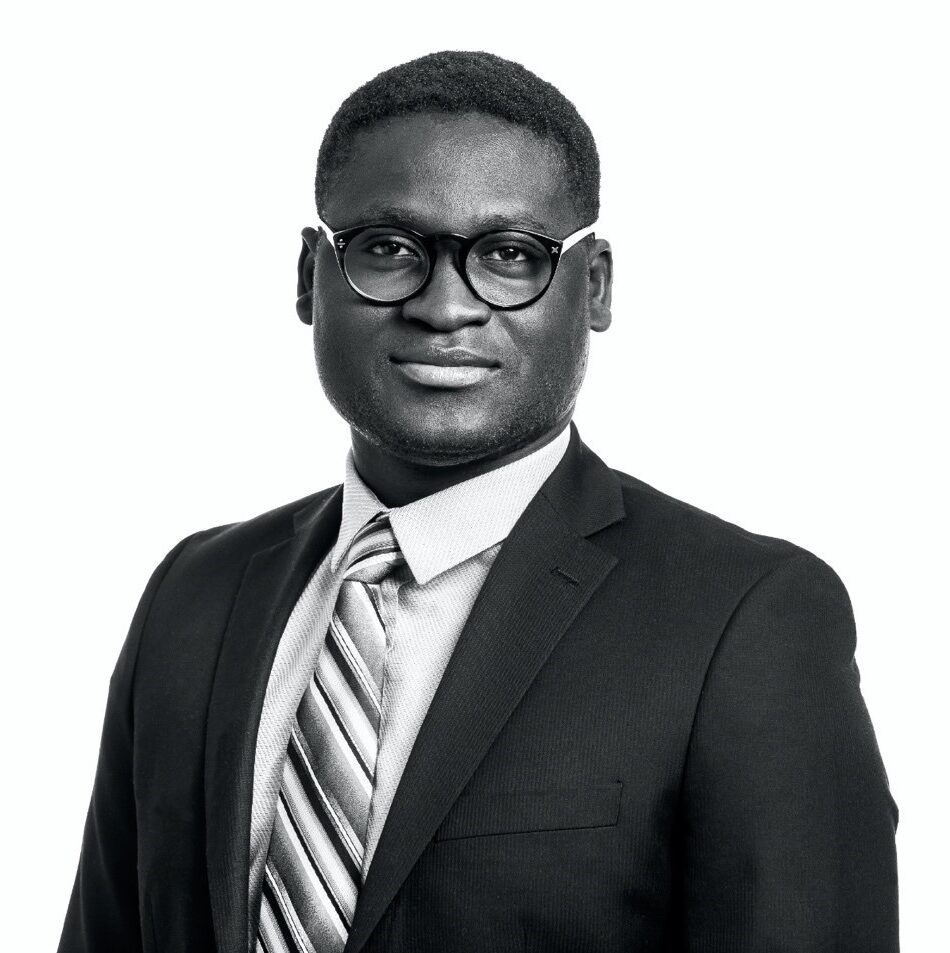
Sam Mombou
Sam Mombou is a fourth-year Ph.D. student studying Higher Education in the Department of Educational Studies.
Read more about Sam Mombou
Where are you from?
I am from Togo, a small country on the west coast of Africa.
Why did you choose Purdue and your area of concentration?
I have always been fascinated by the mechanisms through which governments fund their higher education institutions (HEIs), and the importance of HEIs to make policies that solve the ongoing issues in the field. Having the opportunity to study at Purdue University, an R1 institution, under the umbrella of renowned faculty in the area is a no-brainer.
What are your areas of research interest?
Higher education finance, sponsored research administration, and policies in higher education.
What have been the highlights of your research experience so far?
I am working concomitantly on two papers, one that addresses foreign influence in research, and the other that investigates ways to increase research opportunities for minoritized undergraduate students.
Where do you hope to be in five years?
An Associate Dean for Research or the Director of a Sponsored Research Office.
What advice do you have for your fellow graduate student researchers?
Labor omnia vincit improbus. (Hard work conquers all.)
September 2022
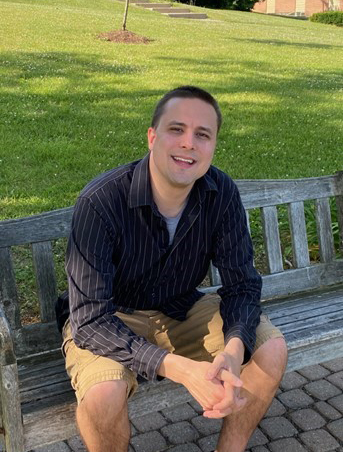
Mark Knight
Mark Knight is a second-year Ph.D. student studying Math Education in the Department of Curriculum and Instruction.
Read more about Mark Knight
Where are you from and what did you do prior to your PhD program?
I am originally from Munster, Indiana. I am currently serving as a high school teacher while working on my PhD part-time.
Why did you choose Purdue and your area of concentration?
I completed my undergraduate studies at Purdue and know that it is a top-tier university with wonderful faculty and many great opportunities. I chose my area of concentration because I wanted to continue to contribute to the field of math education beyond classroom instruction alone.
What are your areas of interest? What led to your interest in these areas?
My current areas of research interest focus on the application of technology in the enacted curriculum of statistics and mathematics education. Having been a teacher of statistics and a purveyor of lots of high-quality technological resources in my classroom, it felt like a natural place to direct my research interests.
What have been the highlights of your research experience so far?
The amount of new ideas, methods, and technologies I have discovered have been the best parts of my work so far.
Where do you hope to be in five years?
I hope to be contributing to mathematics and statistics education both within and beyond the walls of my classroom.
What advice do you have for your fellow graduate student researchers?
Don’t be afraid to ask faculty for input and advice; they are most helpful whenever any issues come up.
2021 Spotlights
Content TBD
2020 Spotlights
September 2020
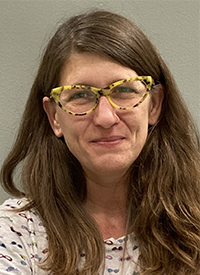
Julie Stuckey Lee
Julie Stuckey Lee is in the second year of her Ph.D. program in Higher Education in the Department of Educational studies.
Read more about Julie Stuckey Lee
Where are you from and what did you do prior to your PhD program?
I have lived in West Lafayette for twelve years. I was a stay at home mom for many years. My son required early intervention and special education services from infancy. This introduced me to a world of education advocacy and social justice issues that I needed to be a part of.
Why did you choose Purdue and your area of concentration?
I chose Purdue because I knew I could get the mentoring that I need to become an effective researcher. I was interested in the Higher Education program, and the opportunity to apply my interests to issues at the postsecondary level.
What are your areas of research interests?
I am studying undocumented students in higher education institutions. My advisor Dr. Snodgrass initially introduced me to this area, and it became my own passion.
What have been the highlights of your research experience so far?
I just submitted my first manuscript as a first author to the Journal of Diversity in Higher Education. It is a metasynthesis of literature that studies ways that undocumented students access and leverage social capitol to overcome the systemic barriers to higher education.
Where do you hope to be in 5 years?
I hope to be a tenure track professor at Purdue.
What advice do you have for your fellow graduate student researchers?
Write every day. This has been my greatest defense against imposter syndrome.
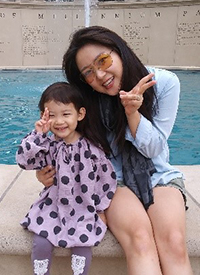
Hyeseong Lee
Hyeseong Lee is in the fifth year of her Ph.D. program in Gifted Education in the Department of Educational studies.
Read more about Hyeseong Lee
Where are you from and what did you do prior to your PhD program?
I am originally from Korea and worked as an elementary and preschool teacher before joining the Ph.D. program at Purdue.
Why did you choose Purdue and your area of concentration?
I believe every child has their own potential and talents, and Purdue is one of the best leading institutions with its Gifted and Talented Education program in the U.S.
What are your areas of research interests?
Talent development and serving underrepresented populations. When working as an elementary school teacher, I had many students from low-income families in my class. Although they had high potential in diverse talent domains, they did not have a sufficient chance to develop their strength areas and I wanted to support them.
What have been the highlights of your research experience so far?
I had chances to research how to support students’ diverse talent domains in terms of university-based enrichment programs. I also collected teacher-rating scale data from Korea to support the low-income or multicultural students to be identified for the gifted program.
Where do you hope to be in 5 years?
I would like to teach pre-service teachers and continue conducting research in the college. I hope my work in the field of gifted education will contribute to supporting students both in Korea and the U.S.
What advice do you have for your fellow graduate student researchers?
Try to take plenty of method courses and be open to collaborate and learn from other colleagues and the faculty!
August 2020
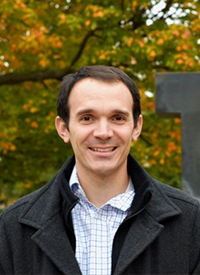
David Premont
David Premont is in the third year of his Ph.D. program in English Education in the Department of Curriculum and Instruction.
Read more about David Premont
Where are you from and what did you do prior to your PhD program?
I am from the greater Washington DC area. Prior to pursuing my PhD, I taught high school English for six years in Utah and Northern Virginia.
Why did you choose Purdue and your area of concentration?
Purdue provided the opportunities and experiences I hoped for in a PhD program while being mentored by accomplished teacher educators in English Education. I owe a lot to the mentorship of both Dr. Janet Alsup and Dr. Tara Johnson.
What are your areas of research interests?
I am focusing on writer teacher education with a specific emphasis on preservice teacher writer identity. My research interests meet at the intersections of my own interests–writer teacher education–and that of Dr. Alsup’s interests in teacher faculty.
What have been the highlights of your research experience so far?
I really enjoy finding the unexpected in my research. The literature I read leading to my dissertation prepared me to think a certain way, but I found gaps that the literature did not prepare me for once I dug into my own research. I think there is quite a bit of potential with preservice teacher writer identity now and beyond my current research.
Where do you hope to be in 5 years?
I hope to be on the tenure track preparing future English teachers while continuing with my growth as a teacher educator and researcher. Specifically, I’d like to teach methods courses that prepare preservice English teachers to be effective writers and writing instructors. Similarly, my goal is to teach, mentor, and supervise preservice English teachers in the necessary aspects of their education.
What advice do you have for your fellow graduate student researchers?
I think it’s important to develop meaningful relationships with many people. I’ve had wonderful opportunities to write, research, and present at conferences with scholars who have influenced me simply because I introduced myself either at a conference or via email and asked if it were possible to meet or talk at a future time. I think it’s also important to become involved in leadership opportunities as a graduate student, too. These opportunities have led me to meet and work with many talented people.